Program
The GDS main program and its themes were finalized by the co-hosts after two years of rigorous consultations with Organizations of Persons with Disabilities (OPDs) and stakeholders from around the world. Their priority areas were presented to the co-hosts and incorporated into the program.
Download the agenda here in English, German and Arabic.
A more accessible English agenda is available here.

Featured speakers
They range from government officials to non-profit leaders, academics and activists, all sharing their insights, experiences and strategies to advance disability-inclusive development and humanitarian action.
Daily Program
2nd April, 2025
Download day programRegistration
All day
Location:
Hall 6
Registration is possible in English, German, Arabic and Sign Language.
Accessible counters will be provided.
Exhibition Space
All day
Location:
Hall 3
More information on the Exhibitors in the Exhibitions tab.
Catering
All day
Location:
Hall 3, 8
Various areas to self-cater, accessible counters and distribution, service staff.
Relaxation + Meeting Area
All day
Location:
Hall 4.1, 8, 1st floor (tbc)
Two Quiet Rooms available
Networking
All day
Location:
Hall 8
Screen Program
All day
Location:
Hall 3, 6, 7, 8
We will have screens projecting the daily program information.
Time:
09:00 AM – 10:00 AM
60’
Location:
Halls 1.2, 4.2, 7.2, 7.3
Side Events
For more details, please check the Side Events tab
Break
· Catering
· Exhibition Space
· Networking
10:00 AM – 10:30 AM
Location:
Hall 3, 8
Time:
10:30 AM – 11:30 AM
60’
Location:
Halls 1.2, 4.2, 7.3
Side Events
For more details, please check the Side Events tab
Time:
11:00 AM – 12:00 PM
60’
Location:
Hall 7.2
Press Conference
Lunch Break
· Catering
· Exhibition Space
· Networking
11:30 AM – 12:10 PM
Location:
Hall 3, 8
Time:
12:10 PM – 12:55 PM
40’
Location:
Hall 7
Pre-Opening
Dance artists
Presentation of outcomes from Regional Summits
Moderators
-
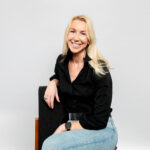 Caroline CaseyModerator
Caroline CaseyModerator
Speakers
-
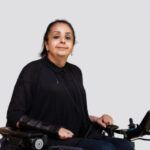 Nadia HadadMember of the Executive Committee, European Disability Forum
Nadia HadadMember of the Executive Committee, European Disability Forum -
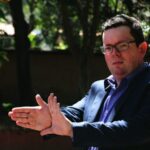 Juan Angel de GouveiaPresident, Latin American Network of Organizations of Persons with Disabilities and their Families
Juan Angel de GouveiaPresident, Latin American Network of Organizations of Persons with Disabilities and their Families -
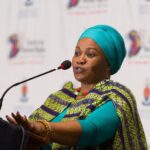 Fatma WangareExecutive Officer, Kenya Association of the Intellectually Handicapped
Fatma WangareExecutive Officer, Kenya Association of the Intellectually Handicapped -
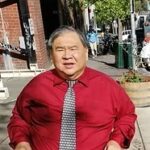 PT LimChair, ASEAN Disability Forum
PT LimChair, ASEAN Disability Forum -
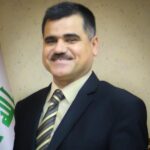 Moaffak AlkhfajiVice President, Arab Organization for Persons with Disabilities
Moaffak AlkhfajiVice President, Arab Organization for Persons with Disabilities -
 Luisa ManuofetoaDeputy Chief Executive Officer Social of the Social Protection and Disability Division at the Ministry of Internal Affairs, Ministry of Internal Affairs, Tonga
Luisa ManuofetoaDeputy Chief Executive Officer Social of the Social Protection and Disability Division at the Ministry of Internal Affairs, Ministry of Internal Affairs, Tonga
Time:
12:55 PM – 13:30 PM
35’
Location:
Hall 7
High-Level Opening
Opening statements
Moderators
-
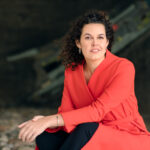 Katie GallusInternational Moderator and Journalist
Katie GallusInternational Moderator and Journalist -
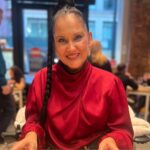 Cara E Yar KhanSpecial Advisor, Global Disability Innovation Hub
Cara E Yar KhanSpecial Advisor, Global Disability Innovation Hub
Speakers
-
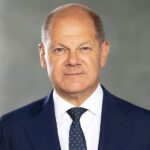 H.E. Olaf ScholzFederal Chancellor of the Federal Republic of Germany
H.E. Olaf ScholzFederal Chancellor of the Federal Republic of Germany -
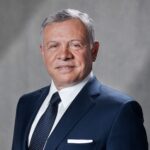 H.M. King Abdullah II bin Al HusseinKing of the Hashemite Kingdom of Jordan
H.M. King Abdullah II bin Al HusseinKing of the Hashemite Kingdom of Jordan -
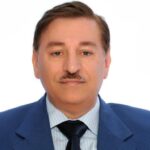 Nawaf KabbaraChair and President, International Disability Alliance
Nawaf KabbaraChair and President, International Disability Alliance -
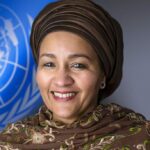 H.E. Amina J. MohammedDeputy Secretary-General of the United Nations
H.E. Amina J. MohammedDeputy Secretary-General of the United Nations
Time:
13:30 PM – 14:15 PM
120’
Location:
Hall 7
Opening Part II: Voices for Inclusion
Moderators
-
 Cara E Yar KhanSpecial Advisor, Global Disability Innovation Hub
Cara E Yar KhanSpecial Advisor, Global Disability Innovation Hub
Speakers
-
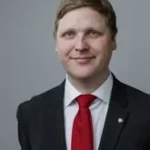 H.E. Åsmund Grøver AukrustMinister of International Development, Norway
H.E. Åsmund Grøver AukrustMinister of International Development, Norway -
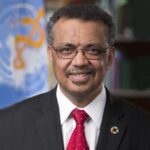 Tedros Adhanom GhebreyesusDirector-General, World Health Organization
Tedros Adhanom GhebreyesusDirector-General, World Health Organization -
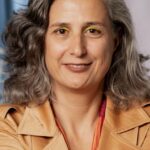 Anacláudia RossbachExecutive Director, UN-Habitat
Anacláudia RossbachExecutive Director, UN-Habitat -
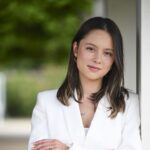 Charlotte YoungYouth Ambassador, International Disability Alliance
Charlotte YoungYouth Ambassador, International Disability Alliance -
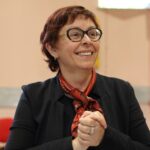 Sanja TarczayPresident, World Federation of the Deafblind
Sanja TarczayPresident, World Federation of the Deafblind -
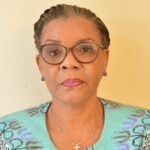 Marie Luise AbomoCommissioner, African Commission on Human and Peoples Rights
Marie Luise AbomoCommissioner, African Commission on Human and Peoples Rights
Break
· Catering
· Exhibition Space
· Networking
14:15 PM – 14:45 PM
Location:
Hall 3, 8
Time:
14:45 PM – 15:45 PM
60’
Location:
Hall 7
Shaping Inclusive Labour Markets and Decent Work for Persons with Disabilities Worldwide
This session is about Inclusive Employment and Decent Work in the context of the implementation of the UN Convention for the Rights of Persons with Disabilities (UN CRPD). The panel brings together senior leaders from government, international organisations, employers’ organizations, trade unions and organisations of persons with disabilities (OPDs) to address the challenges implementing the UN Convention for the Rights of Persons with Disabilities (UN CRPD) in the world of work.
The discussion will focus on creating more inclusive and accessible job markets, and on related topics such as equipping persons with disabilities with necessary skills and building employer capacity to meet UN CRPD and International Labour Organisation (ILO) standards.
Panellists will discuss innovative solutions in advocacy, policy, practice and partnerships to enhance disability equality and economic empowerment. Ultimately, the panellists will explore what must change globally to improve employment prospects for the 1.3 billion people with disabilities.
The Global Disability Summit 2025 in Berlin serves as a key platform to advance disability-inclusive development. Ensuring “Decent Work” for persons with disabilities remains a challenge, despite commitments under the UN CRPD) and the Sustainable Development Goal 8: Decent Work and Economic Growth (SDG 8). Barriers such as discrimination, inaccessible skills training, low expectations, and outdated policies continue to limit the economic participation of persons with disabilities globally.
Moderators
-
 Katie GallusInternational Moderator and Journalist
Katie GallusInternational Moderator and Journalist -
 Caroline CaseyModerator
Caroline CaseyModerator
Speakers
-
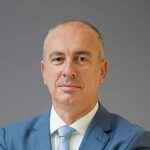 H.E. Fatmir GjekaMinister of Human and Minority-Rights, Montenegro
H.E. Fatmir GjekaMinister of Human and Minority-Rights, Montenegro -
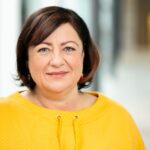 Bärbel KoflerParliamentary State Secretary, Federal Minister for Economic Cooperation and Development, Germany
Bärbel KoflerParliamentary State Secretary, Federal Minister for Economic Cooperation and Development, Germany -
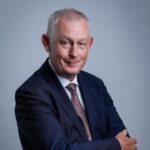 Luc TriangleSecretary-General, International Trade Union Confederation
Luc TriangleSecretary-General, International Trade Union Confederation -
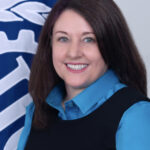 Celeste DrakeDeputy Director-General, International Labour Organisation
Celeste DrakeDeputy Director-General, International Labour Organisation -
 Erol KiresepiHonorary President, International Organisation of Employers
Erol KiresepiHonorary President, International Organisation of Employers -
 Fatma WangareExecutive Officer, Kenya Association of the Intellectually Handicapped
Fatma WangareExecutive Officer, Kenya Association of the Intellectually Handicapped -
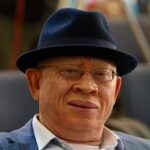 Jake EpelleChief Executive Officer, TAF Africa
Jake EpelleChief Executive Officer, TAF Africa
Break
· Catering
· Exhibition Space
· Networking
15:45 PM – 16:15 PM
Location:
Hall 3, 8
Time:
16:15 PM – 17:15 PM
60’
Location:
Hall 7
Launch of the Resilient and Inclusive Cities Hub (RICH): Because the cities of the future need to work for all
With rapid urbanization and increasing challenges posed by climate change, cities are at a pivotal moment in reshaping their own future. Urban areas must adapt to be inclusive and resilient, ensuring that no one is left behind, especially persons with disabilities who face disproportionate risks from disasters, harshening environmental conditions, lack of consideration during reconstruction efforts, inaccessible infrastructure and exclusion from planning processes.
The Resilient and Inclusive Cities Hub (RICH) focuses on integrating inclusion and resilience into urban development, disaster risk reduction as well as recovery and reconstruction efforts to address accessibility gaps and ensure meaningful participation of persons with disabilities in all phases of urban planning and governance. The aim is to foster partnerships, drive innovative projects and build a global knowledge-sharing platform to disseminate best practices for disability-inclusive urban resilience.
Moderators
-
 Caroline CaseyModerator
Caroline CaseyModerator
Speakers
-
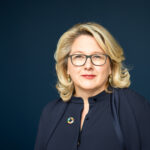 H.E. Svenja SchulzeFederal Minister for Economic Cooperation and Development, Germany
H.E. Svenja SchulzeFederal Minister for Economic Cooperation and Development, Germany -
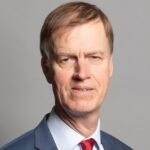 Sir Stephen TimmsMinister of State, Department of Work and Pension and Department of Education, United Kingdom
Sir Stephen TimmsMinister of State, Department of Work and Pension and Department of Education, United Kingdom -
 Anacláudia RossbachExecutive Director, UN-Habitat
Anacláudia RossbachExecutive Director, UN-Habitat -
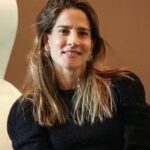 Diana Rodriguez FrancoSpecial Advisor on Gender and Diversity to the President, Inter-American Development Bank
Diana Rodriguez FrancoSpecial Advisor on Gender and Diversity to the President, Inter-American Development Bank -
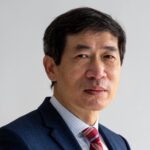 Haoliang XuUnited Nations Under-Secretary-General und UNDP Associate Administrator
Haoliang XuUnited Nations Under-Secretary-General und UNDP Associate Administrator -
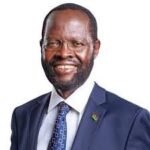 Peter Anyang’ Nyong’oGovernor of Kisumu County, Kenya
Peter Anyang’ Nyong’oGovernor of Kisumu County, Kenya -
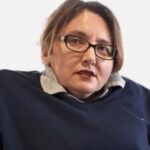 Ola AbualghaibDirector, UN Global Disability Fund
Ola AbualghaibDirector, UN Global Disability Fund -
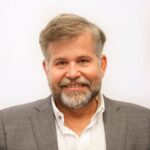 Cato LieFirst Vice President, International Disability Alliance
Cato LieFirst Vice President, International Disability Alliance
Location:
Hall 1.2
Health for all: Transforming health-systems and ensuring health equity for persons with disabilities
Prioritizing health equity for persons with disabilities is essential for achieving universal health coverage (UHC) and the broader Sustainable Development Goal (SDG) 3 targets. Without their full inclusion, global health priorities will remain unattainable. Advancing health equity not only improves individual well-being but also enables the broader participation of persons with disabilities in all aspects of society.
Persons with disabilities face significant health inequities, including higher disease risk, poorer health outcomes, and even earlier mortality. These disparities are largely driven by unfair and avoidable factors within and beyond the health sector. Barriers such as limited access to quality healthcare services, inaccessible physical environments, negative attitudes among healthcare providers, high costs of services, and pervasive societal stigma and discrimination contribute to this crisis.
There is growing recognition of the systemic marginalization faced by persons with disabilities in healthcare. The World Health Organization (WHO) has highlighted these inequities in its Global Report on health equity for persons with disabilities (2022). The World Health Organization (WHO) has also been actively working to include persons with disabilities and their representative organizations across its technical initiatives, supporting countries in expanding access to health services as part of their progress toward universal health coverage (UHC). Additionally, mental health remains a critical aspect of overall health. The World Health Organizations (WHO) QualityRights initiative offers a comprehensive framework to shift mental health systems and practices toward a model that respects human rights, aligning with the Convention on the Rights of Persons with Disabilities (CRPD).
Recent advances in political prioritization in the World Health Assembly (WHA) and in global health and technical and normative guidance by the the World Health Organization (WHO) have the potential to reshape the landscape of health policy and service-delivery for persons with disabilities. Historically, despite experiencing some of the most severe health inequities, persons with disabilities have often been overlooked in public health discussions and policies. Furthermore, ableism, stigma, and discrimination continue to permeate healthcare settings. Many laws and policies still deny persons with disabilities the right to make their own healthcare decisions, leading to harmful practices such as forced sterilization, involuntary admission and treatment, and institutionalization. Unconscious biases among medical staff have also contributed to discriminatory triage practices, as seen during the COVID-19 pandemic, where health policies often failed to consider the specific needs of persons with disabilities.
This 2025 Global Disability Summit (GDS) plenary session presents a crucial opportunity for health and disability stakeholders to advance discussions on health equity for persons with disabilities, with persons with disabilities and their representative organizations at the centre of political prioritization to strengthen health systems towards inclusion and equity for all.
Moderators
-
 Katie GallusInternational Moderator and Journalist
Katie GallusInternational Moderator and Journalist -
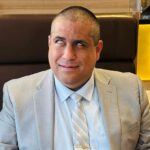 José Maria VieraExecutive Director, International Disability Alliance
José Maria VieraExecutive Director, International Disability Alliance
Speakers
-
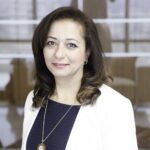 H.E. Samah HamadMinister of Social Development, Palestinian Territories
H.E. Samah HamadMinister of Social Development, Palestinian Territories -
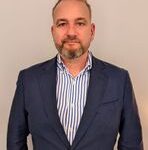 Darryl BarrettTechnical Lead, Disability and Rehabilitation Unit, World Health Organization
Darryl BarrettTechnical Lead, Disability and Rehabilitation Unit, World Health Organization -
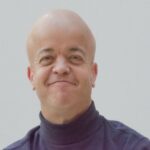 Tom ShakespeareLancet Commissioner, Lancet Commission on Disability
Tom ShakespeareLancet Commissioner, Lancet Commission on Disability -
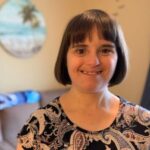 Janet CharchukAmbassador, Down Syndrome International
Janet CharchukAmbassador, Down Syndrome International -
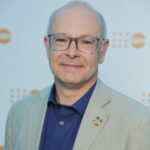 Ian McFarlaneDirector, Division of External Relations, United Nations Population Fund (UNFPA)
Ian McFarlaneDirector, Division of External Relations, United Nations Population Fund (UNFPA) -
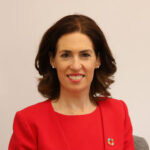 Hildegarde NaughtonMinister of State, Department of children, Equality, Disability, Integration and Youth, Ireland
Hildegarde NaughtonMinister of State, Department of children, Equality, Disability, Integration and Youth, Ireland -
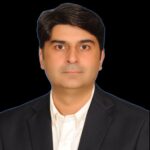 Mukhtar Ahmad MalikState Minister of Health, Pakistan
Mukhtar Ahmad MalikState Minister of Health, Pakistan
Location:
Halls 7.2, 7.3
Side Events
For more details, please check the Side Events tab
Break
· Catering
· Exhibition Space
· Networking
17:15 PM – 17:45 PM
Location:
Hall 3,8
Time:
17:45 PM – 18:45 PM
60’
Location:
Hall 7
Building future ready, inclusive infrastructure for all – New challenges & local solutions
Accessibility is not merely a standalone right, but a pre-condition for realizing the entire Convention on the Rights of Persons with Disabilities (CRPD). Many countries have enacted accessibility laws and policies that are supposed to ensure the accessibility of infrastructure to allow everyone to navigate the world independently, yet implementation remains uneven. Data shows that in developing countries, 33% of persons with disabilities find their dwelling inaccessible, while 43% report that transportation is not accessible. Globally, in 2022, only 57% of buildings, 52% of playgrounds, and 51% of museums were accessible to wheelchair users. Alarming gaps persist in health care facilities—often exceeding 30% inaccessibility, and in some countries reaching 80%. Even more concerning, accessibility in transportation has declined in certain developing countries since 2018.
With 16 percent of persons worldwide living with one or more disabilities, it is critical to place inclusion and access to spaces and public services as well as participation in social and economic activities for persons with disabilities accessibility at the heart of public infrastructure development.
In this session, where representatives of governments, innovators, organisations of persons with disabilities (OPDs), and others come together, we will examine how accessible infrastructure must look like, dive into examples of what has worked in driving accessible infrastructure locally and take stock of our progress towards fulfilling Article 9 of the Convention on the Rights of Persons with Disabilities (CRPD) and the Sustainable Development Goal 11 (SDG 11) on Sustainable Cities and Communities.
Moderators
-
 Cara E Yar KhanSpecial Advisor, Global Disability Innovation Hub
Cara E Yar KhanSpecial Advisor, Global Disability Innovation Hub
Speakers
-
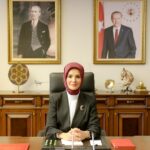 H.E. Mahinur Özdemir GöktaşMinister of Family and Social Services, Türkiye
H.E. Mahinur Özdemir GöktaşMinister of Family and Social Services, Türkiye -
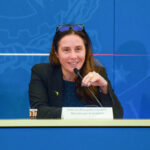 H.E. Alessandra LocatelliMinister for Disabilities, Italy
H.E. Alessandra LocatelliMinister for Disabilities, Italy -
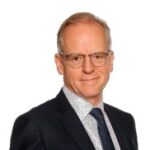 Johannes M. BöhmerVice-Governor Social Development Strategy, Council of Europe Development Bank
Johannes M. BöhmerVice-Governor Social Development Strategy, Council of Europe Development Bank -
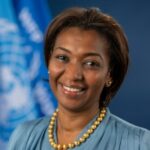 Rania Dagash-KamaraAssistant Executive Director for Partnerships and Innovation, World Food Programme
Rania Dagash-KamaraAssistant Executive Director for Partnerships and Innovation, World Food Programme -
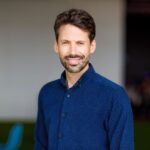 Iain McKinnonExecutive Director, Global Disability Innovation Hub
Iain McKinnonExecutive Director, Global Disability Innovation Hub -
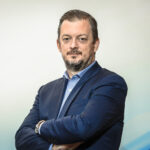 Andrew ParsonsPresident, International Paralympic Committee
Andrew ParsonsPresident, International Paralympic Committee -
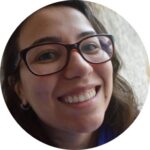 Fernanda SantanaGeneral Secretary, Brazilian Association for Action in the Rights of Autistic People
Fernanda SantanaGeneral Secretary, Brazilian Association for Action in the Rights of Autistic People
Location:
Hall 1.2
From Gradual Actions to Systems Change: How to Transform Education Systems to be Inclusive of and accessible to all
The main objective of the session is to propose solutions to transform national education systems to be inclusive and accessible to all learners, including those with disabilities.
The panel will identify priorities for key stakeholders to accelerate the transformation of education systems, leading to inclusive systems throughout the education chain.
Moderators
-
 Caroline CaseyModerator
Caroline CaseyModerator
Speakers
-
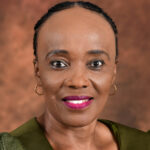 H.E. Sindisiwe ChikungaMinister of Women, Youth and Persons with Disabilities, South Africa
H.E. Sindisiwe ChikungaMinister of Women, Youth and Persons with Disabilities, South Africa -
 H.E. Åsmund Grøver AukrustMinister of International Development, Norway
H.E. Åsmund Grøver AukrustMinister of International Development, Norway -
 Sir Stephen TimmsMinister of State, Department of Work and Pension and Department of Education, United Kingdom
Sir Stephen TimmsMinister of State, Department of Work and Pension and Department of Education, United Kingdom -
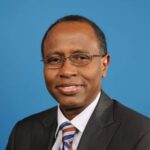 Omar AbdiDeputy Executive Director, United Nations International Children’s Fund
Omar AbdiDeputy Executive Director, United Nations International Children’s Fund -
 José Maria VieraExecutive Director, International Disability Alliance
José Maria VieraExecutive Director, International Disability Alliance -
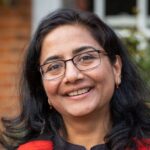 Nidhi SingalProfessor, University of Cambridge, United Kingdom
Nidhi SingalProfessor, University of Cambridge, United Kingdom
Location:
Halls 4.2, 7.3
Side Events
For more details, please check the Side Events tab
Get-together
· Catering
· Exhibition Space
· Networking
· Cultural Program
18:45 PM – 21:00 PM
Location:
Hall 3, 8
Time:
09:00 AM – 10:00 AM
60’
Location:
Hall 1.2
Side Event 1
Ensuring income security for persons with disabilities: the role of disability-specific social security benefits and their feasibility in low- and middle-income countries.
Organized by: The Higher Council for the Rights of Persons with Disabilities (HCD), Jordan, Shamil Technical Facility
Speakers
-
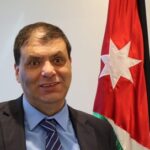 Muhannad AlazzehSecretary General, Higher Council for the Rights of Persons with Disabilities, Jordan
Muhannad AlazzehSecretary General, Higher Council for the Rights of Persons with Disabilities, Jordan -
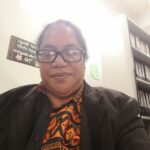 Salote Latu BiukotoPrincipal Welfare Officer, Disability Unit, Ministry of Women, Children and Social Protection, Fiji
Salote Latu BiukotoPrincipal Welfare Officer, Disability Unit, Ministry of Women, Children and Social Protection, Fiji -
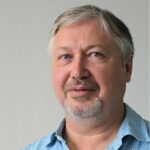 Stephen KiddTechnical Director, Shamil
Stephen KiddTechnical Director, Shamil -
 Pathamavathy NaickerGeneral Manager, Monitoring and Evaluation, South African Social Security Agency, South Africa
Pathamavathy NaickerGeneral Manager, Monitoring and Evaluation, South African Social Security Agency, South Africa
Location:
Hall 4.2
Side Event 2
Building Disability-Inclusive Resilience in the Sahel
Organized by: Deutsche Gesellschaft für Internationale Zusammenarbeit (GIZ), World Food Programme (WFP), United Nations Children’s Fund (UNICEF)
Speakers
-
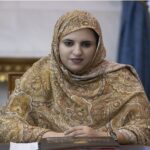 H.E. Savia N’TahaMinister of Social Affairs, Mauritania
H.E. Savia N’TahaMinister of Social Affairs, Mauritania -
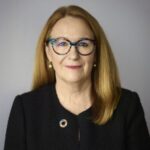 Ingrid-Gabriela HovenManaging Director, GIZ
Ingrid-Gabriela HovenManaging Director, GIZ -
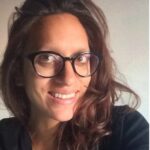 Kavita BrahmbhattSenior Programme Policy Officer, Disability Inclusion, World Food Programme
Kavita BrahmbhattSenior Programme Policy Officer, Disability Inclusion, World Food Programme -
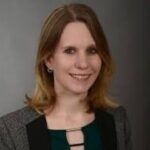 Christine PlastrotmannSenior Policy Adviser, BMZ
Christine PlastrotmannSenior Policy Adviser, BMZ -
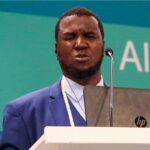 Omar SiddoMember, FNPH Niger
Omar SiddoMember, FNPH Niger -
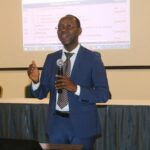 Fara Emile TenguianoSocial Policy Specialist, UNICEF Mali
Fara Emile TenguianoSocial Policy Specialist, UNICEF Mali -
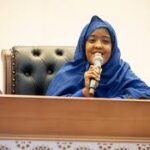 Soumaya VoulaniYouth Advocate, Mauritania
Soumaya VoulaniYouth Advocate, Mauritania
Location:
Hall 7.2
Side Event 3
Deaf Indigenous women’s access to health: the power of citizen data and culturally designed training on SRHR
Organized by: World Federation of the Deaf (WFD)
Speakers
-
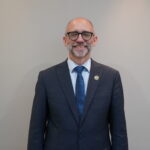 Joseph J. MurrayPresident, World Federation of the Deaf
Joseph J. MurrayPresident, World Federation of the Deaf -
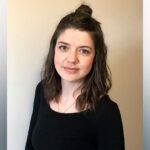 Lauren AveryDisability Project Coordinator, Minority Rights Group International
Lauren AveryDisability Project Coordinator, Minority Rights Group International -
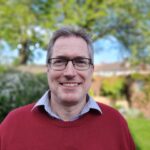 David BainbridgeExecutive Director, CBM Global Disability Inclusion
David BainbridgeExecutive Director, CBM Global Disability Inclusion -
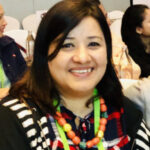 Pratima GurungPresident, National Indigenous Disabled Women Asociation, Nepal
Pratima GurungPresident, National Indigenous Disabled Women Asociation, Nepal -
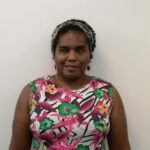 Ruci SenikulaRegional Coordination, Pacific Disability Forum
Ruci SenikulaRegional Coordination, Pacific Disability Forum -
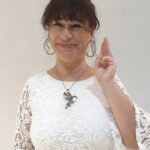 Pamela MolinaExecutive Director, World Federation of the Deaf
Pamela MolinaExecutive Director, World Federation of the Deaf
Location:
Hall 7.3
Side Event 4
Fostering Inclusive Democratic Cultures Through the Leadership of Persons with Disabilities
Organized by: International Foundation for Electoral Systems (IFES)
Speakers
-
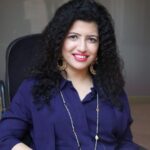 Abia AkramCEO, National Forum of Women with Disabilities, Pakistan
Abia AkramCEO, National Forum of Women with Disabilities, Pakistan -
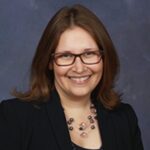 Virginia AtkinsonSenior Global Advisor, International Foundation for Electoral Systems
Virginia AtkinsonSenior Global Advisor, International Foundation for Electoral Systems -
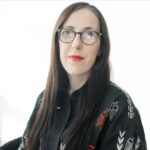 Yuliia SachukHead, Fight for Right, Ukraine
Yuliia SachukHead, Fight for Right, Ukraine -
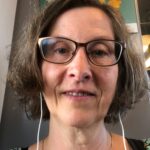 Birgitta WeibahrSenior Policy Specialist, Swedish International Development Cooperation Agency (Sida)
Birgitta WeibahrSenior Policy Specialist, Swedish International Development Cooperation Agency (Sida) -
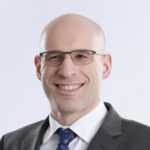 Hazem ZureiqatMember of the Board of Trustees, Higher Council for the Rights of Persons with Disabilities, Jordan
Hazem ZureiqatMember of the Board of Trustees, Higher Council for the Rights of Persons with Disabilities, Jordan
Break
· Catering
· Exhibition Space
· Networking
10:00 AM – 10:30 AM
Location:
Hall 3, 8
Time:
10:30 AM – 11:30 AM
60’
Location:
Hall 1.2
Side Event 5
Inclusive Employment in the Arab Region: Challenges and Policy Recommendations
Organized by: Executive Bureau – Council of Ministers of Labour and Social Affairs in GCC (GCCLSA); International Labour Organization (ILO); United Nations Economic and Social Commission for Western Asia (ESCWA); United Nations Population Fund (UNFPA); International Disability Alliance (IDA); Arab Organization of Persons with Disabilities (AOPD); The Higher Council for the Rights of Persons with Disabilities (HCD); League of Arab States
Speakers
-
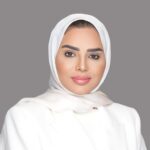 H.E. Amthal Al-huwailahMinster of Social Affairs, Kuwait
H.E. Amthal Al-huwailahMinster of Social Affairs, Kuwait -
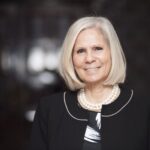 Haifa Abu GhazalehAssistant Secretary General, Head of the Social Affairs Sector, League of Arab States
Haifa Abu GhazalehAssistant Secretary General, Head of the Social Affairs Sector, League of Arab States -
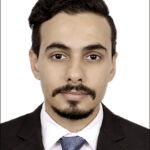 Mohamed AlGhayebSection Head, Social Development, Executive Bureau – Council of Ministers of Labour and Social Affairs, GCC States
Mohamed AlGhayebSection Head, Social Development, Executive Bureau – Council of Ministers of Labour and Social Affairs, GCC States -
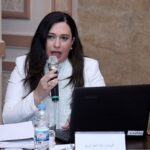 Rania Al JazairiSocial Affairs Officer and Head of the Disability Portfolio
Rania Al JazairiSocial Affairs Officer and Head of the Disability Portfolio -
 Moaffak AlkhfajiVice President, Arab Organization for Persons with Disabilities
Moaffak AlkhfajiVice President, Arab Organization for Persons with Disabilities -
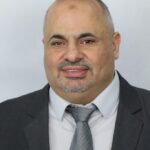 Raafat AlzetawiExpert in Accessibility at the Workplace and Director of the Equal Opportunity Department, HCD
Raafat AlzetawiExpert in Accessibility at the Workplace and Director of the Equal Opportunity Department, HCD -
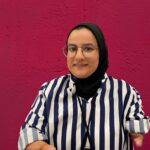 Safiya BahlaniFounder & Owner, Safiya Arts Gallery & Studio
Safiya BahlaniFounder & Owner, Safiya Arts Gallery & Studio -
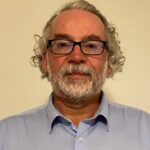 Stefan TromelSenior Disability Specialist, International Labour Organization
Stefan TromelSenior Disability Specialist, International Labour Organization
Location:
Hall 4.2
Side Event 6
Closing the gap: six principles to achieve inclusive development
Organized by: Foreign Commonwealth and Development Office (FCDO), Sightsavers, International Disability Alliance, United Disabled Persons of Kenya, Network of Women with Disabilities, BBC
Speakers
-
 Sir Stephen TimmsMinister of State, Department of Work and Pension and Department of Education, United Kingdom
Sir Stephen TimmsMinister of State, Department of Work and Pension and Department of Education, United Kingdom -
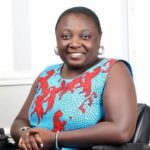 Lois AutaFounder and President, Network of Women with Disabilities
Lois AutaFounder and President, Network of Women with Disabilities -
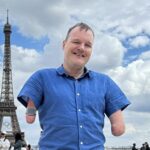 Paul CarterSenior Presenter, BBC
Paul CarterSenior Presenter, BBC -
 José Maria VieraExecutive Director, International Disability Alliance
José Maria VieraExecutive Director, International Disability Alliance -
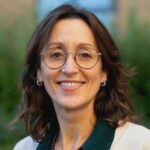 Diana DaltonDeputy Director for Gender, Equalities and Rights, Foreign Commonwealth and Development Office, UK Government
Diana DaltonDeputy Director for Gender, Equalities and Rights, Foreign Commonwealth and Development Office, UK Government -
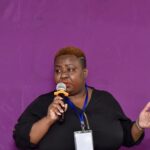 Esther MkamoriHead of programmes, United Disabled Persons of Kenya
Esther MkamoriHead of programmes, United Disabled Persons of Kenya -
 Johannes TrimmelProgramme Director, Disability Inclusive Development, Sightsavers
Johannes TrimmelProgramme Director, Disability Inclusive Development, Sightsavers
Location:
Hall 7.3
Side Event 7
Realizing Commitments to Disability Inclusive Humanitarian Action – the Role of Financing
Organized by: Disability Reference Group (DRG)
Speakers
-
 H.E. Åsmund Grøver AukrustMinister of International Development, Norway
H.E. Åsmund Grøver AukrustMinister of International Development, Norway -
 Omar AbdiDeputy Executive Director, United Nations International Children’s Fund
Omar AbdiDeputy Executive Director, United Nations International Children’s Fund -
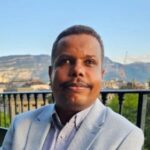 Alradi AbdallaInclusive Humanitarian Action and Disaster Risk Reduction Advisor, International Disability Alliance
Alradi AbdallaInclusive Humanitarian Action and Disaster Risk Reduction Advisor, International Disability Alliance -
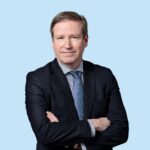 Pasi HellmanUnder-Secretary of State, Ministry of Foreign Affairs, Finland
Pasi HellmanUnder-Secretary of State, Ministry of Foreign Affairs, Finland -
 Juan Angel de GouveiaPresident, Latin American Network of Organizations of Persons with Disabilities and their Families
Juan Angel de GouveiaPresident, Latin American Network of Organizations of Persons with Disabilities and their Families -
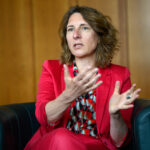 Deike PotzelHead of humanitarian assistance, crisis prevention, stablization and peace building, German Federal Foreign Office
Deike PotzelHead of humanitarian assistance, crisis prevention, stablization and peace building, German Federal Foreign Office -
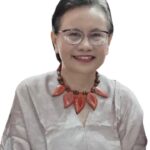 Maulani RotinsuluGeneral Secretary, ASEAN Disability Forum
Maulani RotinsuluGeneral Secretary, ASEAN Disability Forum -
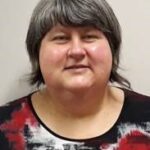 Robyne LevenAssistant Director, DFAT’s Gender Equality, Disability and Social Inclusion Strategy Performance and Effectiveness Section
Robyne LevenAssistant Director, DFAT’s Gender Equality, Disability and Social Inclusion Strategy Performance and Effectiveness Section
Lunch Break
· Catering
· Exhibition Space
· Networking
11:30 AM – 12:15 AM
Location:
Hall 3, 8
Time:
16:15 PM – 17:15 PM
60’
Location:
Hall 7.2
Side Event 8
How to pursue systemic change for inclusive education?
Organized by: World Bank, The Scottish Government
Speakers
-
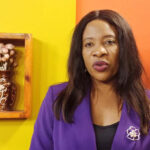 H.E. Madalitso Kambauwa-WirimaMinister of Basic and Secondary Education, Malawi
H.E. Madalitso Kambauwa-WirimaMinister of Basic and Secondary Education, Malawi -
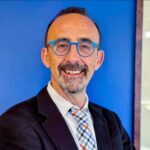 Luis BenvenisteGlobal Director, Education, World Bank
Luis BenvenisteGlobal Director, Education, World Bank -
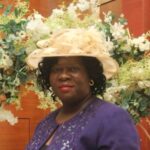 Lucy MagagulaDeputy Director for Inclusive Education, Ministry of Education, Malawi
Lucy MagagulaDeputy Director for Inclusive Education, Ministry of Education, Malawi -
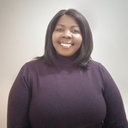 Beatrice MatafwaliAssociate Professor, University of Zambia
Beatrice MatafwaliAssociate Professor, University of Zambia -
 Malonje PhiriDistrict Coordinator, Federation of Disability Organizations in Malawi
Malonje PhiriDistrict Coordinator, Federation of Disability Organizations in Malawi -
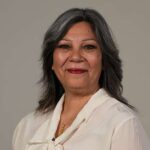 Kaukab StewartMinister for Equalities, Scotland
Kaukab StewartMinister for Equalities, Scotland
Location:
Hall 7.3
Side Event 9
Innovate for Inclusion: Breaking Barriers in Ukraine
Organized by: German Platform for the Reconstruction of Ukraine, UNDP Ukraine
Speakers
-
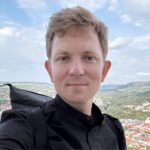 Anton KolomeytsevChief Architekt, Lviv City Council
Anton KolomeytsevChief Architekt, Lviv City Council -
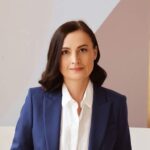 Tetiana LomakinaAdvisor, Presidential Commissioner for Barrier-Free Environment
Tetiana LomakinaAdvisor, Presidential Commissioner for Barrier-Free Environment -
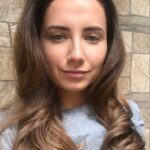 Iryna MalyutinaAdvisor, Ministry of Development of Communities and Territories of Ukraine
Iryna MalyutinaAdvisor, Ministry of Development of Communities and Territories of Ukraine -
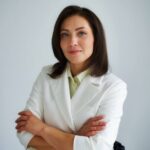 Ulyana PcholkinaChair of the Board, The League of the Strong
Ulyana PcholkinaChair of the Board, The League of the Strong -
 Dmytro PopovHead, Digital Accessibility Laboratory
Dmytro PopovHead, Digital Accessibility Laboratory -
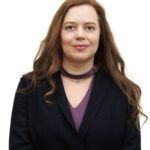 Olena UrsuProgramme Specialist, UNDP Ukraine
Olena UrsuProgramme Specialist, UNDP Ukraine
Break
· Catering
· Exhibition Space
· Networking
17:15 PM – 17:45 PM
Location:
Hall 3, 8
Time:
17:45 PM – 18:45 PM
60’
Location:
Hall 4.2
Side Event 10
AI for development: bridging the barrier between non-standard speech and the use of Automatic Speech Recognition
Organized by: Google, Global Disability Innovation Hub, Centre for Digital Language Inclusion
Speakers
-
 Christopher PatnoeHead of Europe, Middle East, Africa – Accessibility and Disability Innovation, Google
Christopher PatnoeHead of Europe, Middle East, Africa – Accessibility and Disability Innovation, Google -
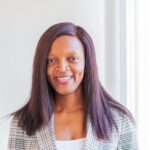 Gifty AyokaFounder, Talking Tips Africa Foundation
Gifty AyokaFounder, Talking Tips Africa Foundation -
 Richard CaveResearch Fellow, Global Disability Innovation Hub
Richard CaveResearch Fellow, Global Disability Innovation Hub -
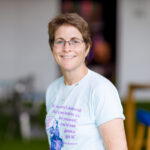 Catherine HollowayFounder and Academic Director, Global Disability Innovation Hub
Catherine HollowayFounder and Academic Director, Global Disability Innovation Hub -
 Yvonne JohnsonAdvocate for AI and Diversity
Yvonne JohnsonAdvocate for AI and Diversity
Location:
Hall 7.3
Side Event 11
Advancing disability-inclusive development through intensified parliamentary engagement & parliamentary networks
Organized by: CBM Christoffel-Blindenmission Christian Blind Mission e.V. and International Disability Alliance
Speakers
-
 Nawaf KabbaraChair and President, International Disability Alliance
Nawaf KabbaraChair and President, International Disability Alliance -
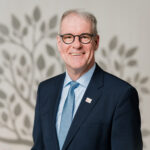 Rainer BrockhausChief Executive Officer, CBM
Rainer BrockhausChief Executive Officer, CBM -
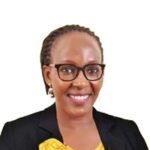 Laura KanushuMP representing Women with Disabilities, Uganda
Laura KanushuMP representing Women with Disabilities, Uganda -
 Karin SauerteigAdviser, European Parliament
Karin SauerteigAdviser, European Parliament -
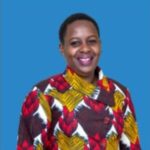 Neema K. LugangiraMP, Tanzania
Neema K. LugangiraMP, Tanzania -
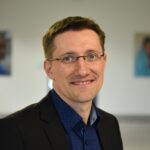 Dominique SchlupkothenDirector Communicy Based Inclusive Development, CBM
Dominique SchlupkothenDirector Communicy Based Inclusive Development, CBM
Get-together
· Catering
· Exhibition Space
· Networking
· Cultural Program
18:45 PM – 21:00 PM
Location:
Hall 3, 8
Time:
9:00 – 9:30
30’
Location:
Fireside Chat Area 1
Stories of Pacific Resilience
Pacific Islands Forum
Speakers
-
 Anne HermanSecretary, Ministry of Internal Affairs, Cook Islands
Anne HermanSecretary, Ministry of Internal Affairs, Cook Islands -
 Anika KingmeleVice President, People with Disabilities Association – Solomon Islands
Anika KingmeleVice President, People with Disabilities Association – Solomon Islands -
 Michael AneoMarshall Islands Disabled Peoples Organisation, Republic of Marshall Islands
Michael AneoMarshall Islands Disabled Peoples Organisation, Republic of Marshall Islands
Location:
Fireside Chat Area 2
Boosting the Nairobi Declaration – Alliancing for African Inclusive Development
African Disability Forum & BRIDGE Africa project, implemented by Deutsche Gesellschaft für Internationale Zusammenarbeit (GIZ) GmbH on behalf of the German Federal Ministry for Economic Cooperation and Development (BMZ)
Speakers
-
 Joseph MotariPrincipal Secretary, Ministry of Labour and Social Protection, Republic of Kenya
Joseph MotariPrincipal Secretary, Ministry of Labour and Social Protection, Republic of Kenya -
 Fatma WangareExecutive Officer, Kenya Association of the Intellectually Handicapped
Fatma WangareExecutive Officer, Kenya Association of the Intellectually Handicapped -
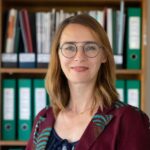 Ingar DüringProject Manager for BRIDGE Africa, Deutsche Gesellschaft für Internationale Zusammenarbeit (GIZ) GmbH
Ingar DüringProject Manager for BRIDGE Africa, Deutsche Gesellschaft für Internationale Zusammenarbeit (GIZ) GmbH
Location:
Fireside Chat Area 3
Breaking Down Barriers: The Intersectional Impact of Ageism and Ableism
HelpAge International
Speakers
-
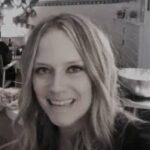 Annie WrightGlobal Inclusion Advisor, HelpAge International
Annie WrightGlobal Inclusion Advisor, HelpAge International -
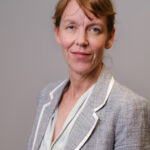 Kobi MaglenDirector of Program Impact, CBM Australia
Kobi MaglenDirector of Program Impact, CBM Australia -
 Andrew KavalaCommissioner, Malawi Human Rights Commission (MHRC) and Chair for Disability and Elderly Directorate
Andrew KavalaCommissioner, Malawi Human Rights Commission (MHRC) and Chair for Disability and Elderly Directorate -
 Esther MkamoriHead of programmes, United Disabled Persons of Kenya
Esther MkamoriHead of programmes, United Disabled Persons of Kenya
Break
10:00 am – 10:30 am
Time:
10:30 – 11:00
30’
Location:
Fireside Chat Area 1
Intersectionality in Action: LGBTQIA+ Voices on Disability Inclusive Disaster Risk Reduction, with Inclusive Rainbow Voices
Inclusive Rainbow Voices
Speakers
-
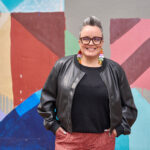 Clare GibelliniCo-Chair, Inclusive Rainbow Voices
Clare GibelliniCo-Chair, Inclusive Rainbow Voices -
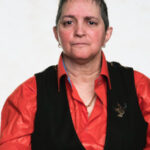 Margherita CoppolinoCo-Chair, Inclusive Rainbow Voices
Margherita CoppolinoCo-Chair, Inclusive Rainbow Voices
Location:
Fireside Chat Area 2
Bridging the Inclusion Gap in international mobility and academic exchange
German Academic Exchange Service (DAAD)
Speakers
-
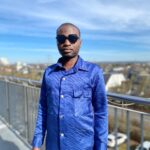 Collins LosuDAAD
Collins LosuDAAD -
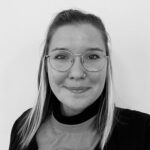 Julia ProftDAAD
Julia ProftDAAD -
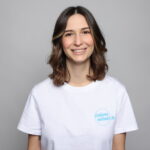 Rukiye BurkartDAAD
Rukiye BurkartDAAD
Location:
Fireside Chat Area 3
How ODA cuts impact Persons With Disability
Global Citizen Deutschland
Moderators
-
 Friederike MeisterSenior Advocacy Director, Global Citizen
Friederike MeisterSenior Advocacy Director, Global Citizen
Speakers
-
 Ola AbualghaibDirector, UN Global Disability Fund
Ola AbualghaibDirector, UN Global Disability Fund -
 Abia AkramCEO, National Forum of Women with Disabilities, Pakistan
Abia AkramCEO, National Forum of Women with Disabilities, Pakistan -
 Miriam Ciscar BlatChief (Deputy Director) Sectoral Branch, Spanish Agency of International Cooperation
Miriam Ciscar BlatChief (Deputy Director) Sectoral Branch, Spanish Agency of International Cooperation
Lunch break & High-Level opening
11:30 am – 16:15 pm
Time:
16:15 – 16:45
30’
Location:
Fireside Chat Area 1
Young Women and Men with Disabilities Driving Economic Inclusion Through the ‘We Can Work’ Program
African Disability Forum (ADF)
Speakers
-
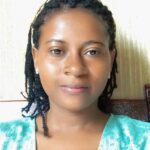 Maureen KalungiNational Union of Disabled Persons of Uganda (NUDIPU)
Maureen KalungiNational Union of Disabled Persons of Uganda (NUDIPU) -
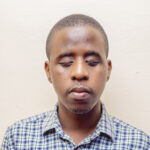 Emmanuel IzereNational Union of Disability Organizations in Rwanda (NUDOR)
Emmanuel IzereNational Union of Disability Organizations in Rwanda (NUDOR) -
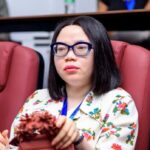 Elizabeth AdamsJoint National Association of Persons with Disabilities (JONAPWD)
Elizabeth AdamsJoint National Association of Persons with Disabilities (JONAPWD)
Location:
Fireside Chat Area 2
TAF Africa Disability Inclusion forum
TAF Africa & Federal Ministry of Humanitarian Affairs and Poverty Reduction & Joint Admissions and Matriculation Board (JAMB)
Speakers
-
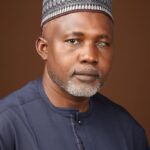 H.E. Yusuf T. SununuMinister of State, Humanitarian Affairs and Poverty Reduction
H.E. Yusuf T. SununuMinister of State, Humanitarian Affairs and Poverty Reduction -
 Jake EpelleChief Executive Officer, TAF Africa
Jake EpelleChief Executive Officer, TAF Africa -
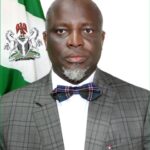 Ishaq OloyedeRegistrar of the Joint Admissions and Matriculation Board (JAMB)
Ishaq OloyedeRegistrar of the Joint Admissions and Matriculation Board (JAMB)
Location:
Fireside Chat Area 3
Driving Disability Inclusion in companies: The Role of Performance Indicators and Regulatory Corporate Sustainability Reporting
Dialoghaus Hamburg gGmbH, Germany & myAbility Social Enterprise GmbH, Austria
Speakers
-
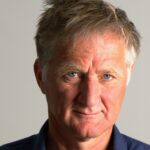 Filip BertzbachExpert for Measurement and Evaluation, Dialoghaus Hamburg
Filip BertzbachExpert for Measurement and Evaluation, Dialoghaus Hamburg -
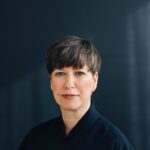 Nora BilzHead of the German Office, myAbility GmbH
Nora BilzHead of the German Office, myAbility GmbH -
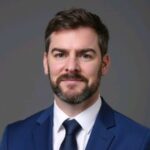 Jürgen MenzeTechnical Specialist, Disability Inclusion, International Labour Organisation
Jürgen MenzeTechnical Specialist, Disability Inclusion, International Labour Organisation
Break
17:15 pm – 17:45 pm
Time:
17:45 – 18:15
30’
Location:
Fireside Chat Area 1
The Future of work is accessible: Building a Gen-AI-Powered inclusive Workplace
Atos
Speakers
-
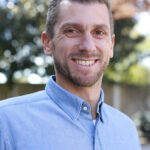 Ricardo Garcia BahamondeDirector of Accessibility and Digital Inclusion, Atos
Ricardo Garcia BahamondeDirector of Accessibility and Digital Inclusion, Atos -
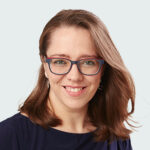 Beatriz González MellídezHead of Accessibility & Digital Inclusion, Central Europe, Atos, IAAP D-A-CH
Beatriz González MellídezHead of Accessibility & Digital Inclusion, Central Europe, Atos, IAAP D-A-CH -
 Alexandra NothnagelAtos, 100% Handinamique, CNCPH
Alexandra NothnagelAtos, 100% Handinamique, CNCPH -
 Sophia Yordanova-RavachevaAtos
Sophia Yordanova-RavachevaAtos
Location:
Fireside Chat Area 2
Autistic Community through Advocacy: The ACTIVATE Project
Directorate for Disability Issues – Ministry for Inclusion and the Voluntary Sector – Malta
Speakers
-
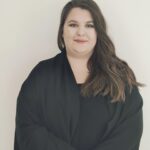 Emily SlaterDirectorate for Disability Issues
Emily SlaterDirectorate for Disability Issues -
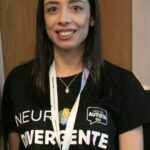 Raquel LebreLearning & Development Project Lead, IMPACTSci
Raquel LebreLearning & Development Project Lead, IMPACTSci -
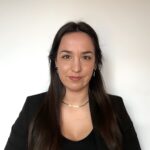 Andreia MorgadoFounder and Director, IMPACTSci
Andreia MorgadoFounder and Director, IMPACTSci
Location:
Fireside Chat Area 3
Empowering Voices: Advancing Disability Inclusion in DRR and Climate Action in the Arab States
United Nations Office for Disaster Risk Reduction
Speakers
-
 Mostafa AttiaDisability Inclusive DRR Expert
Mostafa AttiaDisability Inclusive DRR Expert -
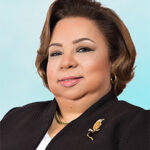 Heba HagrassUN Special Rapporteur on the rights of persons with disabilities
Heba HagrassUN Special Rapporteur on the rights of persons with disabilities -
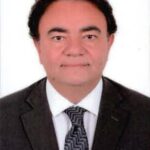 Tarek el NabulsiDirector, Development and Social Policies Dept., League of Arab States
Tarek el NabulsiDirector, Development and Social Policies Dept., League of Arab States
Time:
All Day – Hall 3
8:30 am – 18:30 pm’
Location:
Co-Host Jordan
A Barrier-Free Jordan
Organized by: The Higher Council for the Rights of Persons with Disabilities (HCD)
As the lead on all technical and logistical preparations on behalf of the GDS 2025 co-host in Jordan, the Higher Council for the Rights of Persons with Disabilities will participate in the activities of the Global Disability Summit 2025 with an exhibition for the Hashemite Kingdom of Jordan titled A Barrier-Free Jordan. The exhibition will focus on displaying the best practices and pioneering projects in the field of supporting and promoting the rights of persons with disabilities in various fields in partnership with a group of governmental institutions and private sector corporations. A group of videos, photos, brochures and replica for unique historical and archeological pieces will also be displayed, reflecting the experience of these institutions in piloting inclusive projects for persons with disabilities in order to raise awareness and encourage civil society institutions and the private sector entities to move forward in the disability-inclusive agenda in a variety of fields.
Location:
Visit Berlin
visitBerlin
Organized by: visitBerlin
visitBerlin is dedicated to making Berlin an inclusive and accessible destination. Our key actions include information and inspiration, collaboration with “Tourism for all”, awareness and training as well as building a network for accessibility within Berlin.
Location:
A1
UN Global Disability Fund (UN GDF)
Organized by: UN Global Disability Fund (UN GDF)
The UN Global Disability Fund’s booth will exhibit the important work of UN GDF advancing multi-stakeholder, country-led disability inclusion around the world. The booth will feature experts, case studies, and information on initiatives from UN GDF and its partners in the following areas: inclusive and resilient cities; capacity building and evidence; CSOs; and GDF’s new strategy. Visit us to talk to UN GDF colleagues and our partners, and to learn more about our work.
Location:
A2
Global Disability Innovation Hub: accelerating ideas into impact for a more just world
Organized by: Global Disability Innovation Hub
The exhibition will showcase pioneering global programmes, innovative tech development and research, and how our diverse portfolio enables rapid translation of research into practice. We’ll share key resources and knowledge products for the wider sector, alongside our collaborations with global institutions, business and tech to drive change. Tangible, real-world examples of disability innovation will sit alongside evidence and insights lead by academic excellence as we showcase our vision for disability inclusion and social justice.
Location:
A3
Accessibility 2030 Pavilion: Collaborative Pathways to Inclusive Cities
Organized by: Global Disability Innovation Hub, UNHabitat, UN Global Disability Fund (UN GDF), World Blind Union (WBU)
At this GDS booth, GDI Hub will lead the Accessibility 2030 initiative in partnership with the UK AID funded AT2030 programme, the Global Disability Fund, UNHabitat and World Blind Union. These partnerships ensure that a diversity of voices and expertise is showcased, emphasizing the power of collective action. Together, the partners will present projects and tools that advance accessibility in cities. The exhibition is a continuation of the Accessibility 2030 initiative, where we brought together 15 partners at World Urban Forum in Cairo, Egypt in November. The booth will feature a collaborative showcase of innovations, case studies, and tools aimed at addressing urban accessibility challenges. The content will be tailored to engage visitors, fostering dialogue on how we can work together to make our cities more inclusive.
Location:
A4
This is what inclusion looks like
Organized by: Inclusive futures
In the five countries where we work, there are now more children with disabilities learning at school, more entrepreneurs with disabilities earning a living, and more people with accessing the health care they need, and living their lives free from discrimination. This is what inclusion looks like. Visit our booth to connect with our consortium and OPD partners, explore key insights from our programme such as the six principles for inclusive development, and access memorable stories with our collection of postcards and videos. You can also pledge your support to future generations by signing our open letter on inclusive education and be part of the movement for change. Together, we can close the gap, target inequality and build a more equal world!
Location:
A5
Private sector contributions to the Global Disability Agenda through the lever of International Cooperation
Organized by: Deutsche Gesellschaft für Internationale Zusammenarbeit (GIZ) GmbH
The exhibition booth showcases multi-stakeholder project examples in training and employing persons with disabilities (PWDs). The GIZ cooperates with companies and TVET institutions in GIZ partner countries such as Egypt, Ethiopia, Ghana and Vietnams in sectors like Textiles, Mobility, Digital Services. The booth highlights international cooperation activities and inclusion champions supporting rights and inclusion for PWDs that contribute to systemic change in alignment with international laws and sustainable development goals.
Location:
A6
Youth-led Initiatives for Empowering Young People with Disabilities to Enjoy their Political and Social rights
Organized by: Blind Youth Association Nepal (BYAN)
BYAN is showcasing a diverse range of accessible IEC materials in our exhibition, which we have been using to promote inclusive sexual and reproductive health and rights (SRHR) and the political participation of persons with disabilities. Our display includes Easy-to-Read CSE Flipcharts, Picture Exchange Communication (PEC) materials, and Tactile Models related to Reproductive Health and Family Planning. Visitors can also explore SRHR-related Nepali Sign Language videos and the accessible mobile application “Hami” for SRHR. Additionally, we are presenting our best practices through posters and videos.
Location:
A7
Inclusion is a Right: Speech Therapy & Economic Empowerment for Special Needs Children in Ghana
Organized by: Affinity Access International (AAI)
Experience an exclusive 3D preview of Kumasi’s Therapy & Vocational Hub, a catalyst for nationwide change. Learn how this facility will:
• Train 100 rural therapists annually to staff mobile units reaching remote areas.
• Deliver speech therapy and vocational programs to 100,000 rural and urban special needs children by 2035.
• Partner with KNUST to provide practical training for graduate students aspiring to be Speech-Language Pathologists
Join us in ensuring no child’s potential is limited by geography.
Location:
A8
Inclusion Next Generation: Ghanaian and German Highschool Cooperation promotes implementation of Inclusive Design and Barrier free Systems
Organized by: Frankfurt University of Applied Sciences (Frankfurt UAS), U!REKA European University in cooperation with the KWAME Nkrumah University of Science and Technology; Kumasi, Ghana
Ghanaian and German University Cooperation promotes implementation of Inclusive Design and Barrier free Systems The interdisciplinary master’s programme ‘Inclusive Design’ at Frankfurt UAS and the ‘College of Art and Built Environment’ at KNUST have been collaborating for many years. Since 2011, the Ghanaian and German teachers and students have been working together to develop and research inclusive solutions for the implementation of inclusive design and barrier-free systems. The aim is to design liveable environments that take equal account of spatial, technical and social aspects. Concretely, a first joint Guideline was published for Ghanaian vocational institutions in 2022: ‘Inclusive Architectural Design Concepts and Strategies for Technical Vocational Education Training’. As part of the GDS, best-practice examples of the different activities of our international university cooperation, the respective study programmes of the two universities involved and the Guideline will be presented as a contribution to the obligation to implement Inclusion. You can look forward to more information, documentation and possible dialogue at the booth.
Location:
A9
Restoring Hope: Jordan’s Initiative to Support Amputees
Organized by: Restoring Hope Society
Restoring Hope Society’s exhibition showcases the prosthetic technology used in its areas of operations. The prostheses are developed by UK-based companies Koalaa (upper limbs) and Amparo (lower limbs), and are currently being used to treat amputees in Gaza, who are estimated to number over 16,000. Visit the exhibition to find out how you can contribute to supporting amputees in Gaza.
Location:
A10
Weaving Intersectional Inclusion: Innovative & Collaborative Tools for Economic and Equitable inclusion in Pakistan’s community and workplaces
Organized by: Deutsche Gesellschaft für Internationale Zusammenarbeit (GIZ) GmbH
Our exhibition showcases innovative efforts to promote diversity and disability inclusion across workplaces, education, and healthcare in Pakistan. Through GIZ-WE and the Employers Federation, the Pakistan Business and Disability Network (PBDN) drives job fairs, policy dialogues, and employer sensitization. GIZ’s PST and GPI projects provide e-learning to help businesses adopt inclusive practices, while success stories from Soorty Textiles, Intermarket Knit, and Deaf Reach demonstrate inclusive hiring in action. GIZ-EHS further strengthens inclusion by improving access to education and healthcare. Together, these initiatives create equitable opportunities for all!
Location:
A11
Konrad-Adenauer-Stiftung e.V.
Organized by: Konrad-Adenauer-Stiftung e.V.
For every citizen, Art. 25 of the International Covenant on Civil and Political Rights protects the right to vote, to be elected and to be part of public affairs. Konrad-Adenauer-Stiftung, together with its OPD partners who are coming to Berlin from the PR China, the Hashemite Kingdom of Jordan, Mongolia, Namibia, and Spain are showcasing at the exhibition booth best-practices of political participation on national level and through international cooperation. We want to engage with GDS participants to learn about their experiences, their activities and achievements which allow us to strive together for better opportunities for persons with disabilities to engage politically.
Location:
A12
Listen Include Respect: Guidelines for Inclusive Participation
Organized by: Down Syndrome International and Inclusion International
This exhibition profiles Listen Include Respect, the first international guidelines for organisations on inclusive participation for people with intellectual disabilities. The guidelines contain information on how to make any organisation inclusive – with guidance on ways to improve communication, provide good support, develop inclusive meetings, consultations and activities, employ people, and foster leadership. Visitors to the exhibition booth can learn about the guidelines, get information on how to apply them in their organisations, and get advice people with intellectual disabilities directly about how to include them in the work of the organisation.
Location:
A13
TBD
Organized by: Include Me TOO
Location:
A14
CREI (Inclusive Education Reference Center) / RJ / BR
Organized by: CREI (Inclusive Education Reference Center) / RJ / BR
The Inclusive Education Reference Center (CREI), inaugurated in April 2024, will train over 20,000 educators in inclusive and innovative teaching. Through accessibility tools, assistive technologies and alternative communication methods, it will promote the participation of people with disabilities. Additionally, it will implement a comprehensive support program for 100 families, integrating SESC and SENAC initiatives and developing a social technology replicable in inclusive public policies. This delegation reinforces Fecomércio RJ and its partner institutions’ commitment to building a more inclusive and accessible world for all.
Location:
A15
International Disability Alliance Information Booth
Organized by: International Disability Alliance
The International Disability Alliance kiosk will serve as the dedicated hub for OPDs. It will also function as a support point, offering real-time guidance and assistance throughout the Summit. Additionally, the kiosk will feature communication materials showcasing International Disability Alliance’s role as a co-host and its commitment to ensuring OPD voices are meaningfully included in the GDS process.
Location:
B1
Global Disability Inclusion Report – Accelerating Disability Inclusion in a Changing and Diverse World
Organized by: Global Disability Summit 2025
Location:
B2
The Future of Disability Rights is Feminist: Gender on the Agenda at GDS
Organized by: Women Enabled International
As feminists with disabilities and allies, we believe that it is essential that Gender is on the Agenda in disability rights spaces like the Global Disability Summit. This booth will serve as a community space for feminists with disabilities and allies at GDS and as a hub for conversation about rights at the intersection of gender and disability, what it means to be a feminist with disabilities, and how to support feminist disabled leadership. The booth will feature the work of Women Enabled International, other organizations led by feminists with disabilities, and GDS commitment makers whose work prioritizes rights at the intersection of gender and disability.
Location:
B3
Wansolwara Pacific
Organized by: Pacific Islands Forum
The exhibition booth will highlight the strides made in disability inclusion across the 18 countries of the Pacific. It will feature a range of multimedia and printed materials to engage visitors and raise awareness about the initiatives and achievements in promoting an inclusive society. The booth will be designed to be accessible and welcoming to all visitors, including those with disabilities.
Location:
B4
(Withdrew)
Organized by: NA
Location:
B5
Target Inequality
Organized by: Sightsavers
Disability rights are human rights — so why can’t millions of people with disabilities access theirs? Visit our exhibition to meet our team and discover how you can take action through our campaigns and programmes to target inequality and build a more equal world. While you’re at our stand, grab a ‘Disability rights are human rights’ badge, pick up the latest edition of Changing Times newspaper —featuring powerful stories from young disability rights activists — and access our flagship Equal World? film. Join us in making change happen!
Location:
B6
Rehabilitation matters: The appeal made by people in conflict-affected areas
Organized by: Humanity and Inclusion – Handicap International
“Rehabilitation Matters” spotlights the transformative impact of rehabilitation and assistive technology on the lives of individuals in conflict-affected regions. The exhibition highlights the intersection of personal resilience and systemic change, revealing how access to rehabilitation builds a foundation for societal participation and inclusion.
The personal stories of women and men with disabilities come together into a unified call to action: the urgent need to scale up rehabilitation services and assistive technology globally, ensuring they are accessible, high quality, and rooted in the principles of rights, inclusion, and dignity.
Location:
B7
VENRO: German NGOs Driving Inclusive International Cooperation
Organized by: VENRO, Association of German Development and Humanitarian Aid Organizations
VENRO’s Disability Inclusion Working Group aims to mainstream disability inclusion in development cooperation and humanitarian aid, both by NGOs and the German Government. At the centre of the working group’s activities is the implementation of the international articles of the Convention on the Rights of Persons with Disabilities.
The group consists of German NGOs working in development and humanitarian aid. We advocate for the inclusion of persons with disabilities in Germany’s foreign and development policies and within VENRO’s member organizations.
Location:
B8
Qatar Social Work
Organized by: Qatar Social Work
– Highlighting the efforts of the Qatar Social Work Foundation and its affiliated centers in supporting and empowering persons with disabilities.
– The participation of Al Shafallah Center for Persons with Disabilities and Al Noor Center for the Blind to showcase initiatives and specialized services aimed at enhancing independence and social inclusion for this group.
– Exchanging experiences and enhancing collaboration with international organizations to create an inclusive and supportive environment for communities around the world.
Location:
B9
Building a Resilient Workforce: Career Success and Opportunity for All
Organized by: America – Mideast Educational and Training Services (Amideast) – Jordan
Amideast’s exhibition booth highlights its commitment to education for all and workforce integration. Showcasing its various programs, initiatives and strategic partnership approach, the booth demonstrates how educational pathways and market-driven skills training create sustainable employment opportunities for all.
Location:
B10
Inclusive Development in Action
Organized by: CBM Christian Blind Mission
At our booth, we present our Inclusive Participation Toolbox, a web-based tool designed to make it easier for stakeholders in international cooperation to achieve meaningful participation of persons with disabilities. It includes background knowledge, practical advice and ready-to-use material. Visitors can explore the Toolbox live and take a little quiz about it. Additionally, we show how CBM promotes the rights and inclusion of persons with disabilities through examples of our work in the Global South.
Location:
B11
Resilience for All: Putting Disability Inclusive Disaster Risk Reduction into Practice
Organized by: The Disability inclusive DRR Network (DiDRRN)
The Exhibition Booth will showcase and foster joint learning on innovative practices in disability-inclusive humanitarian action, disaster risk reduction (DRR) and climate action through case studies, toolkits, research findings, and multimedia displays. The resources (developed by the DiDRRN and its member organisations) address issues such as inclusive needs assessments, disability-disaggregated data, Early Warning 4 All, inclusive anticipatory action, multi-stakeholder collaboration and leadership of persons with disabilities, equipping stakeholders with practical ways to embed disability inclusion in Humanitarian, DRR and climate action strategies worldwide.
Location:
B12
PurpleSpace
Organized by: PurpleSpace
Visit our booth to talk about how your organisation can network with a global community of disability Employee Resource Group (ERG)/Network leaders, allies and champions to improve business performance and learn directly from your employees with disabilities. We call it ‘building disability confidence from the inside out’ and we have generated a global movement for positive cultural change.
Location:
B13
Inklusion von Anfang an – Mission Inklusion!
Organized by: Aktion Mensch e.V.
The Aktion Mensch organization has a mission to foster dialogue around ideas and opportunities for promoting inclusion in society. To achieve this, it is essential to have good examples and strong networks. Therefore the organization focuses on cooperation and collaboration between civil society, the business sector, and government agencies just as on the participation of people with disabilities in shaping the services and offerings.
Location:
B14
Transformative Urban Mobility Initiative (TUMI)
Organized by: Transformative Urban Mobility Initiative (TUMI)
The TUMI Booth is an interactive space showcasing solutions for sustainable and inclusive mobility. It features a VR experience that allows visitors to step into the shoes of different transport users across three continents, highlighting mobility challenges from diverse perspectives. Designed as a platform for engagement, the booth fosters discussions on accessibility, equity, and the future of urban mobility.
Location:
B15
Zero Project: Solutions for a world with zero barriers
Organized by: Zero Project
At the booth the Zero Project showcases key initiatives advancing innovation, accessibility, and inclusion for persons with disabilities. The Zero Project AI Assistant: Partnership Tool enhances global cooperation by leveraging disability-inclusive solutions. The Scale-Ups Report highlights 25 scalable practices, with some innovators present at the booth. The Champions of Inclusive Spaces Report promotes Universal Design in public spaces and complements the Zero Project’s fireside chat. Lastly, the Zero Project Call for Nominations 2026 (#ZeroCall26) fosters global collaboration in identifying and scaling innovative solutions for Accessibility, ICT, and Crisis Response.
Location:
IEH
Inclusive Educational Hub
Organized by: Perkins, German Federal Ministry for Economic Cooperation and Development (BMZ), Google, World Vision, International Disability Alliance (IDA) and the GLAD Inclusive Education Working Group.
Inclusive education sits at the foundation of realizing a broader disability inclusion agenda around the world. That’s why Perkins, BMZ, Google, and World Vision, with support from the International Disability Alliance (IDA) and the GLAD Inclusive Education Working Group, are joining forces to host The Inclusive Education Hub within the Exhibition Hall of the Global Disability Summit. Set up like an inclusive classroom, the Hub will feature two days of programming showcasing practical examples and diverse perspectives on how quality and accessible learning is driving equity in education and transforming the lives of children with disabilities.
Location:
AT exhibition
Assistive Technology: ‘Transforming Today and creATing futures’
An exhibition showcasing the transformative power of assistive technology (AT) called ‘Assistive Technology: Transforming today and creATing futures’ will be organized during the Global Disability Summit on 2-3 April 2025, and the Civil Society Forum on 1 April 2025. There continues to be limited understanding of the challenges faced by persons with disabilities, knowledge of assistive technology and the progress made by the AT sector. The exhibition will highlight the role of AT as one key element to tackle such challenges and the transformative impact AT can have on those who need it. Moreover, there is a growing need and usefulness for AT in the general population as well. However, there is a stark difference between the availability of AT in high income and low/middle income countries, even as there are more and more promising stories of success in these countries. The ‘Assistive Technology: Transforming today and creATing futures’ exhibition will share stories of innovation and inspiration that showcase solutions to overcome challenges of accessibility, availability and affordability. The exhibition, curated by ATscale, the global alliance for assistive technology, will be representing AT users, suppliers, distributors, non-profits, innovators from different regions of the world to showcase the transformative power of AT.
3rd April, 2025
Time:
08:00 AM – 12:00 PM
2 h 40’
Location:
Hall 6
Registration
Registration is possible in English, German, Arabic and Sign Language.
Accessible counters will be provided.
Exhibition Space
All day
Location:
Hall 3
Catering
All day
Location:
Hall 3, 8
Various areas to self-cater, accessible counters and distribution, service staff.
Relaxation + Meeting Area
All day
Location:
Hall 4.1, 8, 1st floor (tbc)
Two Quiet Rooms available
Networking
All day
Location:
Hall 8
Screen Program
All day
Location:
Hall 3, 6, 7, 8
Screens projecting the daily program information.
Time:
09:00 AM – 10:00 AM
60’
Location:
Halls 1.2, 4.2, 7.2, 7.3
Side Events
For more details, please check the Side Events tab
Break
· Catering
· Exhibition Space
· Networking
10:00 AM – 10:30 AM
Location:
Hall 3, 8
Time:
10:30 AM – 11:30 AM
60’
Location:
Hall 7
No equity without investment: The urgent need for disability-inclusive financing
Persons with disabilities make up over 16 % of the global population – about 1.3 billion people – yet remain underrepresented in the discourse around global development and financing frameworks. Despite some progress, historical underinvestment persists, and without disability-inclusive financing, sustainable disability-inclusive development is impossible.
The global financing gap for sustainable development now stands at USD 4 trillion (Organization for Economic Cooperation and Development/OECD 2025), an increase of over 50 % since pre-pandemic estimates, and is projected to increase to USD 6,4 trillion in 2030. Many developing countries face rising debt burdens, economic instability, and worsening inequalities, yet disability remains largely sidelined in financing discussions.
Article 32 of the Covention on the Rights of Persons with disabilities/CRPD) underscores the need for inclusive international cooperation, while governments must commit the “maximum available resources” to fulfil disability rights at the national level. This requires integrating disability into budgets, policies, and programs to ensure no one is left behind.
Moderators
-
 Katie GallusInternational Moderator and Journalist
Katie GallusInternational Moderator and Journalist -
 Cara E Yar KhanSpecial Advisor, Global Disability Innovation Hub
Cara E Yar KhanSpecial Advisor, Global Disability Innovation Hub
Speakers
-
 H.E. Naima Ben YahiaMinister of Solidarity, Social Integration and Family, Morocco
H.E. Naima Ben YahiaMinister of Solidarity, Social Integration and Family, Morocco -
 Haoliang XuUnited Nations Under-Secretary-General und UNDP Associate Administrator
Haoliang XuUnited Nations Under-Secretary-General und UNDP Associate Administrator -
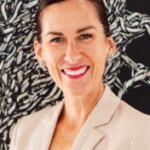 Sally-Anne HenfryAssistant Secretary, Department of Foreign Affairs and Trade, Australia
Sally-Anne HenfryAssistant Secretary, Department of Foreign Affairs and Trade, Australia -
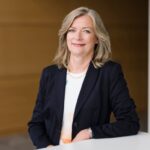 Christiane LaibachMember of the Executive Board, Kreditanstalt für Wiederaufbau
Christiane LaibachMember of the Executive Board, Kreditanstalt für Wiederaufbau -
 Ola AbualghaibDirector, UN Global Disability Fund
Ola AbualghaibDirector, UN Global Disability Fund -
 José Maria VieraExecutive Director, International Disability Alliance
José Maria VieraExecutive Director, International Disability Alliance
Time:
11:30 AM – 12:30 PM
60’
Location:
Hall 7
Leading the Way: Featuring the Most Impactful Commitments for Disability Inclusion in Development Cooperation
Over the years, many commitments on disability inclusion have been made in the framework of the Global Disability Summits (GDS) commitment mechanism – but what makes a commitment truly impactful? The most effective commitments are those that are actionable, well-resourced, and have a clear plan for implementation.
This session will highlight a range of commitments that have been pledged in the run-up of the GDS 2025 and demonstrate these qualities – examples of real, transformative action from governments, international organizations, organisations of persons with disabilities, and foundations that push for the rights and dignity of persons with disabilities globally.
By sharing these examples, we aim to inspire stronger collaboration, scale up efforts, and drive meaningful progress. This is also an opportunity to reflect on achievements, learn from different approaches, and look ahead to ambitious, renewed commitments for GDS 2025.
Moderators
-
 Cara E Yar KhanSpecial Advisor, Global Disability Innovation Hub
Cara E Yar KhanSpecial Advisor, Global Disability Innovation Hub
Speakers
-
 H.E. Svenja SchulzeFederal Minister for Economic Cooperation and Development, Germany
H.E. Svenja SchulzeFederal Minister for Economic Cooperation and Development, Germany -
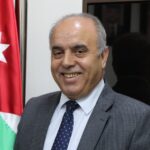 H.E. Azmi MahafzahMinister of Education and Minister of Higher Education and Scientific Research, Jordan
H.E. Azmi MahafzahMinister of Education and Minister of Higher Education and Scientific Research, Jordan -
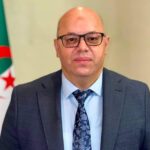 H.E. Laïd RebigaMinister of Mujahideen and Rights Holders, Algeria
H.E. Laïd RebigaMinister of Mujahideen and Rights Holders, Algeria -
 Sir Stephen TimmsMinister of State, Department of Work and Pension and Department of Education, United Kingdom
Sir Stephen TimmsMinister of State, Department of Work and Pension and Department of Education, United Kingdom -
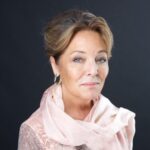 Yasmine SherifExecutive Director, Education Cannot Wait
Yasmine SherifExecutive Director, Education Cannot Wait -
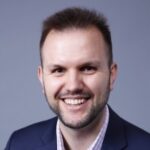 Robin Tim WeisDirector, International Affairs, Zero Project
Robin Tim WeisDirector, International Affairs, Zero Project -
 José Maria VieraExecutive Director, International Disability Alliance
José Maria VieraExecutive Director, International Disability Alliance -
 Omar AbdiDeputy Executive Director, United Nations International Children’s Fund
Omar AbdiDeputy Executive Director, United Nations International Children’s Fund -
 Sally-Anne HenfryAssistant Secretary, Department of Foreign Affairs and Trade, Australia
Sally-Anne HenfryAssistant Secretary, Department of Foreign Affairs and Trade, Australia -
 David BainbridgeExecutive Director, CBM Global Disability Inclusion
David BainbridgeExecutive Director, CBM Global Disability Inclusion -
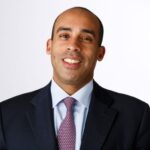 Luis Jimenez McInnisRepresentative, Inter-American Development Bank
Luis Jimenez McInnisRepresentative, Inter-American Development Bank -
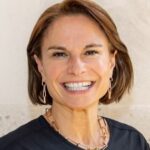 Katy TalikowskaCEO, Valuable 500
Katy TalikowskaCEO, Valuable 500
Break
· Catering
· Exhibition Space
· Networking
12:30 PM – 13:00 PM
Location:
Hall 3, 8
Time:
13:00 PM – 14:00 PM
60’
Location:
Hall 7
From Risk Reduction to Recovery: Disability-Inclusive Practices for Disasters and Conflicts
Persons with disabilities are often disproportionately affected by disasters and armed conflicts due to physical, social, and systemic barriers. This session will explore how disability-inclusive practices can be integrated into disaster risk management and response as well as in conflict settings and peacebuilding efforts.
It will highlight the role of Organizations of Persons with Disabilities (OPDs) in decision-making processes, including small and local organizations, and focus on the importance of coordination, including inter-agency collaboration in humanitarian sectors in disaster and conflict settings.
Specific emphasis will be placed on advancing protection and strengthening resilience of persons with disabilities in conflict and disaster and recovery and resilience strengthening settings.
Moderators
-
 Katie GallusInternational Moderator and Journalist
Katie GallusInternational Moderator and Journalist -
 Muhannad AlazzehSecretary General, Higher Council for the Rights of Persons with Disabilities, Jordan
Muhannad AlazzehSecretary General, Higher Council for the Rights of Persons with Disabilities, Jordan
Speakers
-
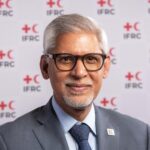 Jagan ChapagainChief Executive Officer and Secretary General, International Federation of Red Cross and Red Crescent Societies
Jagan ChapagainChief Executive Officer and Secretary General, International Federation of Red Cross and Red Crescent Societies -
 Yasmine SherifExecutive Director, Education Cannot Wait
Yasmine SherifExecutive Director, Education Cannot Wait -
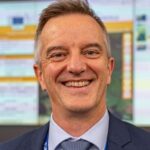 Hans DasDeputy Director-General, European Civil Protection and Humanitarian Aid Operations, European Commission
Hans DasDeputy Director-General, European Civil Protection and Humanitarian Aid Operations, European Commission -
 Henry Murillo SalazarCoordinator, National Network of Networks of Persons with Disabilities
Henry Murillo SalazarCoordinator, National Network of Networks of Persons with Disabilities -
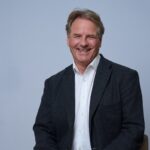 Edward HallCoordinator, Restoring Hope Society
Edward HallCoordinator, Restoring Hope Society
Location:
Hall 1.2
Building connections, bridging the digital divide: an inclusive and accessible digital future for all persons with disabilities
The expansion of the internet and Information and Communication Technologies (ICTs) presents both opportunities and challenges for persons with disabilities. While these technologies have the potential to equalize opportunities, significant barriers persist in areas such as education, health, employment, and political participation.
Despite progress in policy and frameworks, the disability digital divide remains a major challenge. In this session, we will explore the role of new and emerging technologies, including Artificial Intelligence, in promoting inclusion and accessibility for persons with disabilities.
We will reflect on lessons learned, discuss the opportunities and challenges of digital innovation, and identify key areas that require attention to ensure digital equity for all.
The session will also explore how governments, the private sector, and civil society can work together to bridge the disability digital divide and ensure that emerging technologies are accessible, affordable, and usable worldwide.
Moderators
-
 Caroline CaseyModerator
Caroline CaseyModerator
Speakers
-
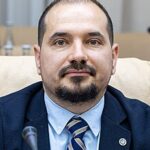 H.E. Alexei BuzuMinister of Labour and Social Protection, Modova
H.E. Alexei BuzuMinister of Labour and Social Protection, Modova -
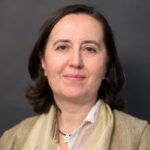 Inmaculada Placencia PorreroSenior Expert on Disability, European Commission
Inmaculada Placencia PorreroSenior Expert on Disability, European Commission -
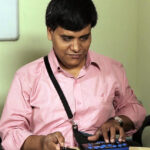 Pradeep SinhaChairperson, Society for the Empowerment of the Deafblind of India
Pradeep SinhaChairperson, Society for the Empowerment of the Deafblind of India -
 Christopher PatnoeHead of Europe, Middle East, Africa – Accessibility and Disability Innovation, Google
Christopher PatnoeHead of Europe, Middle East, Africa – Accessibility and Disability Innovation, Google -
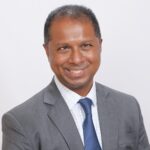 Sachin Dev PavithranExecutive Director of the U.S. Access Board
Sachin Dev PavithranExecutive Director of the U.S. Access Board -
 Martin EsslFounder, Zero Project and Essl Foundation
Martin EsslFounder, Zero Project and Essl Foundation -
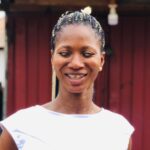 Esther NageteyYouth Fellow, International Disability Alliance
Esther NageteyYouth Fellow, International Disability Alliance
Location:
Halls 4.2, 7.2
Side Events
For more details, please check the Side Events tab
Location:
Hall 7.3
Disability Data Forum
The Disability Data Forum will spotlight investments and efforts realized or required to strengthen data on persons with disabilities in global, regional and country data systems in terms of capacity building, data production, use and impact. The Data Forum includes three consecutive side event sessions.
For more details of each session, please check the Side Events tab
Organized by: International Disability Alliance; GIZ; Higher Council for the Rights of Persons with Disabilities, Jordan; World Bank; UNICEF; Washington Group on Disability Statistics; Global Disability Fund; CBM; Center for Inclusive Policy; Microsoft; Disability Data Initiative; Fordham University
Break
· Catering
· Exhibition Space
· Networking
14:00 PM – 14:30 PM
Location:
Hall 3, 8
Time:
14:30 PM – 15:30 PM
60’
Location:
Hall 7
Participation and representation in public life and decision making
Participation is the cornerstone of democracy, embodying the vital tenets of empowerment, accountability, and social inclusion. When persons with disabilities engage meaningfully in political and public life, the outcome is transformative, allowing their views and their expertise to be recognized, and their rights enforced.
Despite the solid grounding provided by the Convention on the rights of persons with disabilities (CRPD)—particularly Articles 4(3), 29, and 33—persistent gaps in political participation reflect the hurdles that remain, including the lack of accessibility and reasonable accommodation. In the case of marginalized groups within the disability community, the lack of recognition of their legal capacity poses further challenges to their right to vote or run for office.
In response to these challenges, a multifaceted approach is necessary. It is important to recognize the political engagement does not happen in isolation. It is an integral part of the larger civic and social engagement of persons with disabilities, Systemic barriers that keep persons with disabilities from social interactions, including the lack of information, accessibility, acceptance, etc., also keep them away from political life.
The first step is to drive high-level advocacy and reform by eliminating discriminatory legal frameworks and introducing inclusive electoral policies that guarantee the equal political rights of persons with disabilities. Accessibility including access to information must be ensured for persons with disabilities to be able to make informed choices.
Equally important is the urgent need to secure stable and meaningful funding for Organizations of persons with disabilities (OPDs) so that they can not only advance the right to participate for all persons with disabilities but are also equipped to fulfil the role of being true representatives of persons with disabilities in decision and policy making.
Moderators
-
 Caroline CaseyModerator
Caroline CaseyModerator
Speakers
-
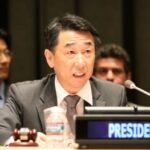 Oh JoonProfessor, United Nations studies and former ambassador of the Republic of Korea
Oh JoonProfessor, United Nations studies and former ambassador of the Republic of Korea -
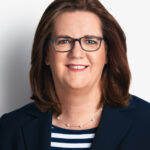 Kerstin GrieseParliamentary State Secretary , Federal Ministry of Labour and Social Affairs, Germany
Kerstin GrieseParliamentary State Secretary , Federal Ministry of Labour and Social Affairs, Germany -
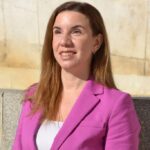 Natalia Sofía Guala BeathyateDeputy Director of International Relations, Organización Nacional de Ciegos Españoles
Natalia Sofía Guala BeathyateDeputy Director of International Relations, Organización Nacional de Ciegos Españoles -
 Pratima GurungPresident, National Indigenous Disabled Women Asociation, Nepal
Pratima GurungPresident, National Indigenous Disabled Women Asociation, Nepal -
 Hilda MachesoAssociation of Persons with Albinism
Hilda MachesoAssociation of Persons with Albinism -
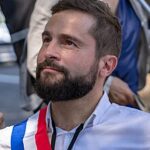 Sebastien PeytavieMember of the French National Assembly
Sebastien PeytavieMember of the French National Assembly
Location:
Hall 1.2
The Road to Inclusive Climate Action: From Berlin to Belém and Beyond
The effects of climate change have a disproportionate impact on the lives, health, well-being and livelihoods of persons with disabilities. They are, for example, affected by higher mortality and morbidity rates during extreme weather events due to a range of challenges, including barriers in accessibility, information, and meaningful participation.
Despite this, persons with disabilities have not been adequately included in the climate change discourse. In September 2024, eight disability organizations at the regional and global level sent a formal letter to the members of the Paris Agreement, criticizing the exclusion of the disability movement from the United Nations climate negotiations and calling for the creation of an official constituency of persons with disabilities.
Well-designed, inclusive climate action and disaster risk reduction strategies recognize that individuals experience impacts differently, shaped by intersecting dimensions such as disability, gender, age, and socio-economic status.
Adopting an All of Society approach ensures that risks are reduced for the most vulnerable population groups and benefits and burdens are distributed fairly across all community members.
Moderators
-
 Cara E Yar KhanSpecial Advisor, Global Disability Innovation Hub
Cara E Yar KhanSpecial Advisor, Global Disability Innovation Hub
Speakers
-
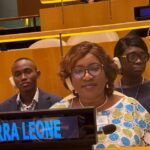 H.E. Melrose KarmintyMinister of Social Welfare, Sierra Leone
H.E. Melrose KarmintyMinister of Social Welfare, Sierra Leone -
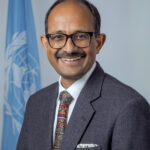 Kamal KishoreSpecial Representative to the Secretary General and Head of UNDRR
Kamal KishoreSpecial Representative to the Secretary General and Head of UNDRR -
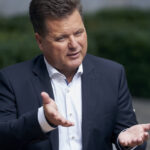 Jürgen DuselFederal Commissioner for Matters relating to Persons with Disabilities, Germany
Jürgen DuselFederal Commissioner for Matters relating to Persons with Disabilities, Germany -
 Ruci SenikulaRegional Coordination, Pacific Disability Forum
Ruci SenikulaRegional Coordination, Pacific Disability Forum -
 Kaukab StewartMinister for Equalities, Scotland
Kaukab StewartMinister for Equalities, Scotland -
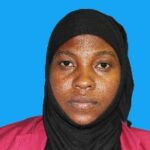 Ummy NderianangaDeputy Minister, Prime Minister’s Office, Tanzania
Ummy NderianangaDeputy Minister, Prime Minister’s Office, Tanzania
Location:
Halls 4.2, 7.2
Side Events
For more details, please check the Side Events tab
Location:
Hall 7.3
Disability Data Forum
The Disability Data Forum will spotlight investments and efforts realized or required to strengthen data on persons with disabilities in global, regional and country data systems in terms of capacity building, data production, use and impact. The Data Forum includes three consecutive side event sessions.
For more details of each session, please check the Side Events tab
Organized by: International Disability Alliance; GIZ; Higher Council for the Rights of Persons with Disabilities, Jordan; World Bank; UNICEF; Washington Group on Disability Statistics; Global Disability Fund; CBM; Center for Inclusive Policy; Microsoft; Disability Data Initiative; Fordham University
Break
· Catering
· Exhibition Space
· Networking
15:30 PM – 16:00 PM
Location:
Hall 3, 8
Time:
16:00 PM – 17:00 PM
60’
Location:
Hall 1.2
Unlocking Maximum Available Resources: Inclusive And Innovative Financing To Advance Disability Rights
Ensuring sufficient and effective financing for disability-inclusive development remains a significant challenge. Despite global commitments, resources allocated to disability inclusion are often inadequate, and organizations of persons with disabilities (OPDs) frequently find themselves excluded from critical financial decision-making processes.
This plenary session will explore how financial institutions can maximize available resources to foster disability-inclusive development. Additionally, the discussion will explore new and innovative financing models, including engagement from the private sector and philanthropic contributions.
This event will elevate OPD perspectives, highlighting the power imbalances that need to be addressed to fully realize the potential of disability-inclusive financing and development.
Moderators
-
 Cara E Yar KhanSpecial Advisor, Global Disability Innovation Hub
Cara E Yar KhanSpecial Advisor, Global Disability Innovation Hub
Speakers
-
 H.E. Savia N’TahaMinister of Social Affairs, Mauritania
H.E. Savia N’TahaMinister of Social Affairs, Mauritania -
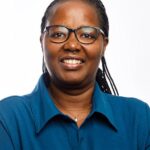 Gérardine MukeshimanaVice President, International Fund for Agricultural Development
Gérardine MukeshimanaVice President, International Fund for Agricultural Development -
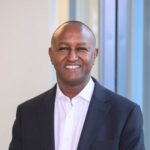 Emmanuel B. NyirinkindiVice President, Cross-Cutting Solutions, International Finance Corporation
Emmanuel B. NyirinkindiVice President, Cross-Cutting Solutions, International Finance Corporation -
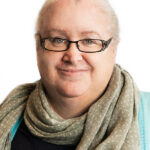 Mary KeoghChair, International Disability and Development Consortium
Mary KeoghChair, International Disability and Development Consortium -
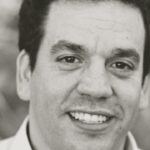 Juan Pablo Salazar SalamancaInclusion coordinator, Development Bank of Latin America and the Carribean
Juan Pablo Salazar SalamancaInclusion coordinator, Development Bank of Latin America and the Carribean -
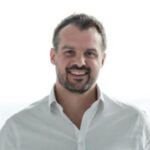 David HallSocial Sustainability Director, Lloyds Banking Group
David HallSocial Sustainability Director, Lloyds Banking Group
Location:
Halls 4.2, 7.2
Side Events
For more details, please check the Side Events tab
Location:
Halls 7.3
Disability Data Forum
The Disability Data Forum will spotlight investments and efforts realized or required to strengthen data on persons with disabilities in global, regional and country data systems in terms of capacity building, data production, use and impact. The Data Forum includes three consecutive side event sessions.
For more details of each session, please check the Side Events tab
Organized by: International Disability Alliance; GIZ; Higher Council for the Rights of Persons with Disabilities, Jordan; World Bank; UNICEF; Washington Group on Disability Statistics; Global Disability Fund; CBM; Center for Inclusive Policy; Microsoft; Disability Data Initiative; Fordham University
Break
· Catering
· Exhibition Space
· Networking
17:00 PM – 17:15 PM
Location:
Hall 3, 8
Time:
17:15 PM – 18:45 PM
90’
Location:
Hall 7
Joint Final: The Amman-Berlin Declaration for Global Disability Inclusion
The joint finale is the opportunity to wrap-up the discussions held at GDS 2025, and to create momentum for the aftermath of the summit and future GDSs´.
It is worth staying till the very moment, as we will present the central outcome document of GDS25: the Amman-Berlin Declaration for Global Disability Inclusion.
We will learn who is the Host of the next GDS, and jointly celebrate the GDS with different cultural acts, including a singer, a deaf-performer and an orchestra.
Moderators
-
 Caroline CaseyModerator
Caroline CaseyModerator -
 Cara E Yar KhanSpecial Advisor, Global Disability Innovation Hub
Cara E Yar KhanSpecial Advisor, Global Disability Innovation Hub
Speakers
-
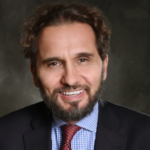 H.R.H. Prince Mired Bin Ra’ad Al husseinPresident, Higher Council for the Rights of Persons with Disabilities, Jordan
H.R.H. Prince Mired Bin Ra’ad Al husseinPresident, Higher Council for the Rights of Persons with Disabilities, Jordan -
 H.E. Svenja SchulzeFederal Minister for Economic Cooperation and Development, Germany
H.E. Svenja SchulzeFederal Minister for Economic Cooperation and Development, Germany -
 H.E. Melrose KarmintyMinister of Social Welfare, Sierra Leone
H.E. Melrose KarmintyMinister of Social Welfare, Sierra Leone -
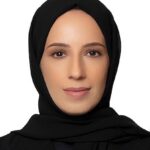 H.E. Buthaina Bint Ali Al Jabr Al NuaimiMinister of Social Development and Family, Qatar
H.E. Buthaina Bint Ali Al Jabr Al NuaimiMinister of Social Development and Family, Qatar -
 Heba HagrassUN Special Rapporteur on the rights of persons with disabilities
Heba HagrassUN Special Rapporteur on the rights of persons with disabilities -
 José Maria VieraExecutive Director, International Disability Alliance
José Maria VieraExecutive Director, International Disability Alliance -
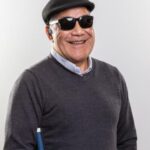 Latoa Halatau-TalagiSecond Vice President, International Disability Alliance
Latoa Halatau-TalagiSecond Vice President, International Disability Alliance -
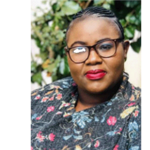 Ruth MkutumulaExecutive Director, Disabled Women in Africa
Ruth MkutumulaExecutive Director, Disabled Women in Africa
Brave New World – GDS Club Night
– Public festival-like club event on 4 floors
– Music, fashion and arts
– Best-practice approach in regards to inclusion
20:00 PM – 05:00 AM
Location: Ritter Butzke (Ritterstrasse 24-27, Berlin)
Link of the event: https://brave-new-world.berlin/
Time:
09:00 AM – 10:00 AM
60’
Location:
Hall 1.2
Side Event 12
Technology, Innovation, and Entrepreneurship: Supporting Independent Living for Persons with Disabilities
Organized by: League of Arab States, International Disability Alliance (IDA), Arab Organization for persons with Disabilities (AOPD), Executive Bureau – Council of Ministers of Labour and Social Affairs in GCC (GCCLSA)
Speakers
-
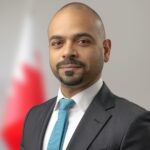 H.E. Osama bin Saleh Al-AlawiMinister of Social Development, Kingdom of Bahrain
H.E. Osama bin Saleh Al-AlawiMinister of Social Development, Kingdom of Bahrain -
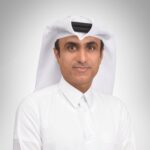 H.E. Muhammad bin Hassan Al-ObaidlyGeneral Director, Executive Bureau of the Council of Ministers of Labor and Social Affairs GCC
H.E. Muhammad bin Hassan Al-ObaidlyGeneral Director, Executive Bureau of the Council of Ministers of Labor and Social Affairs GCC -
 H.E. Wafa Abu Bakr Al-KilaniMinister of Social Affairs, Libya
H.E. Wafa Abu Bakr Al-KilaniMinister of Social Affairs, Libya -
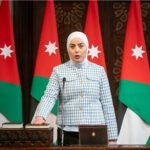 H.E. Wafa Bani MustafaMinister of Social Development, Jordan
H.E. Wafa Bani MustafaMinister of Social Development, Jordan -
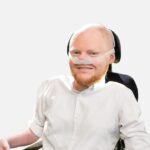 H.E. Łukasz KrasońState Secretary, Ministry of Family, Labor and Social Policy, Government Plenipotentiary for Persons with Disabilities, Poland
H.E. Łukasz KrasońState Secretary, Ministry of Family, Labor and Social Policy, Government Plenipotentiary for Persons with Disabilities, Poland -
 H.E. Issam LahmarMinister of Social Affairs, Tunisia
H.E. Issam LahmarMinister of Social Affairs, Tunisia -
 H.E. Samah HamadMinister of Social Development, Palestinian Territories
H.E. Samah HamadMinister of Social Development, Palestinian Territories -
 H.E. Alessandra LocatelliMinister for Disabilities, Italy
H.E. Alessandra LocatelliMinister for Disabilities, Italy -
 H.E. Svenja SchulzeFederal Minister for Economic Cooperation and Development, Germany
H.E. Svenja SchulzeFederal Minister for Economic Cooperation and Development, Germany -
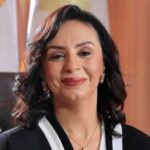 H.E. Maya MorsyMinister of Social Solidarity, Egypt
H.E. Maya MorsyMinister of Social Solidarity, Egypt -
 H.E. Naima Ben YahiaMinister of Solidarity, Social Integration and Family, Morocco
H.E. Naima Ben YahiaMinister of Solidarity, Social Integration and Family, Morocco -
 Annette Von KalckreuthHead of the Directorate, General for Participation of Persons with Disabilities, Social Compensation and Social Assistance, Federal Ministry of Labor and Social Affairs, Germany
Annette Von KalckreuthHead of the Directorate, General for Participation of Persons with Disabilities, Social Compensation and Social Assistance, Federal Ministry of Labor and Social Affairs, Germany -
 Haifa Abu GhazalehAssistant Secretary General, Head of the Social Affairs Sector, League of Arab States
Haifa Abu GhazalehAssistant Secretary General, Head of the Social Affairs Sector, League of Arab States -
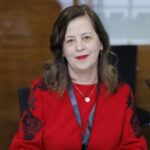 Jahda Abou KhalilGeneral Director, Arab Organization of Persons with Disabilities
Jahda Abou KhalilGeneral Director, Arab Organization of Persons with Disabilities -
 Tarek el NabulsiDirector, Development and Social Policies Dept., League of Arab States
Tarek el NabulsiDirector, Development and Social Policies Dept., League of Arab States -
 Heba HagrassUN Special Rapporteur on the rights of persons with disabilities
Heba HagrassUN Special Rapporteur on the rights of persons with disabilities -
 Nawaf KabbaraChair and President, International Disability Alliance
Nawaf KabbaraChair and President, International Disability Alliance -
 Iman KarimGeneral Supervisor, National Council for People with Disabilities
Iman KarimGeneral Supervisor, National Council for People with Disabilities
Location:
Hall 4.2
Side Event 13
Addressing Stigma, Discrimination and Violence Against Women with Disabilities
Organized by: United Nations Entity for Gender Equality and the Empowerment of Women (UN Women), United Nations Development Programme (UNDP), Global Forum on the Leadership of Women with Disabilities (GFLWD), United Nations Population Fund (UNFPA), Women Enabled International (WEI), Government of France, Higher Council for the Rights of Persons with Disabilities (HCD), Jordan
Speakers
-
 Abia AkramCEO, National Forum of Women with Disabilities, Pakistan
Abia AkramCEO, National Forum of Women with Disabilities, Pakistan -
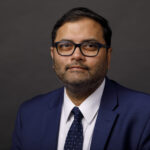 Monjurul KabirGlobal Adviser and Team Leader for Gender, Disability Inclusion and Intersectionality, UN Women
Monjurul KabirGlobal Adviser and Team Leader for Gender, Disability Inclusion and Intersectionality, UN Women -
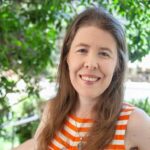 Sofia MinieriStrategy Manager, Women Enabled international
Sofia MinieriStrategy Manager, Women Enabled international -
 Alia H. ZureikatAdviser to the President at Jordan’s Higher Council for the Rights of Persons with Disabilities
Alia H. ZureikatAdviser to the President at Jordan’s Higher Council for the Rights of Persons with Disabilities -
 Ian McFarlaneDirector, Division of External Relations, United Nations Population Fund (UNFPA)
Ian McFarlaneDirector, Division of External Relations, United Nations Population Fund (UNFPA)
Location:
Hall 7.2
Side Event 14
Companies as Allies for OPDs and Governments to Foster Inclusive Employment
Organized by: UnternehmensForum, ILO Global Business and Disability Network (GBDN)
Speakers
-
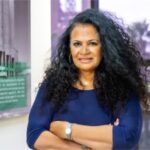 Sherry BisharaGroup Chief People and Corporate Sustainability Officer, Beltone Holding
Sherry BisharaGroup Chief People and Corporate Sustainability Officer, Beltone Holding -
 Jake EpelleChief Executive Officer, TAF Africa
Jake EpelleChief Executive Officer, TAF Africa -
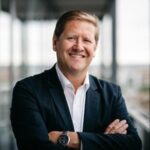 Andy GarrettWorkplace Adjustments and Accessibility Director, GSK
Andy GarrettWorkplace Adjustments and Accessibility Director, GSK -
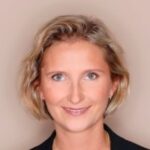 Anke LenzChief Inclusion Officer and Digital Accessibility Lead, Accenture
Anke LenzChief Inclusion Officer and Digital Accessibility Lead, Accenture -
 Jürgen MenzeTechnical Specialist, Disability Inclusion, International Labour Organisation
Jürgen MenzeTechnical Specialist, Disability Inclusion, International Labour Organisation -
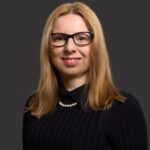 Nadine SchönwaldBoard Member, UnternehmensForum
Nadine SchönwaldBoard Member, UnternehmensForum -
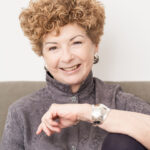 Susan Scott-ParkerFounder, Business Disability International
Susan Scott-ParkerFounder, Business Disability International
Location:
Hall 7.3
Side Event 15
Political participation: an instrument of empowerment for persons with disabilities
Organized by: Konrad-Adenauer-Stiftung (KAS), The Higher Council for the Rights of Persons with Disabilities (HCD), Jordan, Namibian Federation of the Visually Impaired; Christoffel-Blindenmission
Speakers
-
 Muhannad AlazzehSecretary General, Higher Council for the Rights of Persons with Disabilities, Jordan
Muhannad AlazzehSecretary General, Higher Council for the Rights of Persons with Disabilities, Jordan -
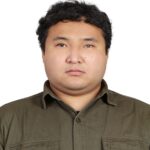 Bayarbaatar AngaragParticipant, KAS Community Advocacy Program for Youth with Disabilities in Mongolia
Bayarbaatar AngaragParticipant, KAS Community Advocacy Program for Youth with Disabilities in Mongolia -
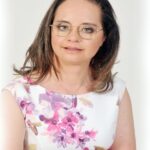 Maria del Mar Galceran GadeaMember of the Spanish Regional Parliament, Corts Valencianes (Partido Popular)
Maria del Mar Galceran GadeaMember of the Spanish Regional Parliament, Corts Valencianes (Partido Popular) -
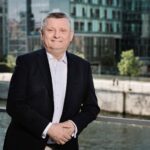 Hermann GröheVice-Chairman, Konrad-Adenauer-Stiftung, former German Minister of Health
Hermann GröheVice-Chairman, Konrad-Adenauer-Stiftung, former German Minister of Health -
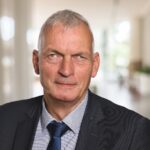 Michael HerbstHead of Political Affairs, CBM Christoffel-Blindenmission
Michael HerbstHead of Political Affairs, CBM Christoffel-Blindenmission -
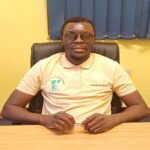 Moses NghipandulwaDirector, Namibian Federation of the Visually Impaired
Moses NghipandulwaDirector, Namibian Federation of the Visually Impaired -
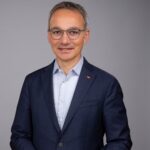 Wilfried OellersMember of the German Bundestag, Spokesperson of the CDU/CSU parliamentary group on inclusion
Wilfried OellersMember of the German Bundestag, Spokesperson of the CDU/CSU parliamentary group on inclusion
Break
· Catering
· Exhibition Space
· Networking
10:00 AM – 10:30 AM
Location:
Hall 3, 8
Time:
10:30 AM – 11:30 AM
60’
Location:
Hall 1.2
Side Event 16
How self-advocates successfully influence policies
Organized by: Bundesvereinigung Lebenshilfe, Inclusion Europe, Inclusion International
Speakers
-
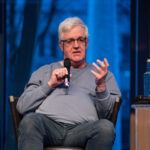 Torsten BergesBundesvereinigung Lebenshilfe
Torsten BergesBundesvereinigung Lebenshilfe -
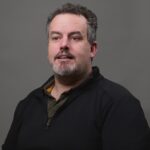 Soufiane El AmraniInclusion Europe
Soufiane El AmraniInclusion Europe -
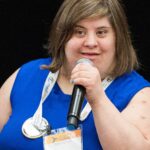 Marie FarahLebanon Association of Self-Advocacy
Marie FarahLebanon Association of Self-Advocacy -
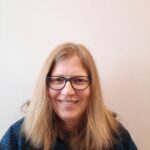 Claudia FrankeBundesvereinigung Lebenshilfe
Claudia FrankeBundesvereinigung Lebenshilfe -
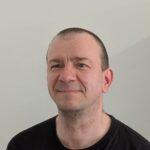 Dirk MichalekBundesvereinigung Lebenshilfe
Dirk MichalekBundesvereinigung Lebenshilfe -
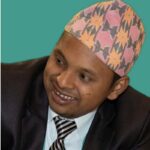 Shiva ShresthaInclusion International
Shiva ShresthaInclusion International
Location:
Hall 7.2
Side Event 17
Victim Assistance in Disability Rights Context
Organized by: The Implementation Support Unit (ISU) of the Anti-Personnel Mine Ban Convention
Speakers
-
 Firoz AlizadaImplementation Support Officer, Implementation Support Unit (ISU) Anti-Personnel Mine Ban Convention
Firoz AlizadaImplementation Support Officer, Implementation Support Unit (ISU) Anti-Personnel Mine Ban Convention -
 Mercy Maruva DinhaDeputy Minister, Ministry of Public Service, Labour and Social Welfare, Zimbabwe
Mercy Maruva DinhaDeputy Minister, Ministry of Public Service, Labour and Social Welfare, Zimbabwe -
 Antony DuttineTechnical Lead (Rehabilitation), World Health Organization (WHO)
Antony DuttineTechnical Lead (Rehabilitation), World Health Organization (WHO) -
 Suela LalaExecutive Director, Together Foundation/ Fondacioni “Se Bashku”, Albania
Suela LalaExecutive Director, Together Foundation/ Fondacioni “Se Bashku”, Albania -
 Michael MwendwaDisability Inclusion Advisor, International Committee of the Red Cross (ICRC)
Michael MwendwaDisability Inclusion Advisor, International Committee of the Red Cross (ICRC) -
 Varuni MuthukumaranaAmbassador of Sri Lanka to Germany, Member of the Committee on Victim of the Assistance of the Anti-Personnel Mine Ban Convention
Varuni MuthukumaranaAmbassador of Sri Lanka to Germany, Member of the Committee on Victim of the Assistance of the Anti-Personnel Mine Ban Convention -
 Elisabeth RiedererDeputy Head of Mission of Austria to Germany, Member of the Committee on Victim of the Assistance of the Anti-Personnel Mine Ban Convention
Elisabeth RiedererDeputy Head of Mission of Austria to Germany, Member of the Committee on Victim of the Assistance of the Anti-Personnel Mine Ban Convention -
 Juan Carlos RuanDirector, Implementation Support Unit (ISU) Anti-Personnel Mine Ban Convention
Juan Carlos RuanDirector, Implementation Support Unit (ISU) Anti-Personnel Mine Ban Convention
Location:
Hall 7.3
Side Event 18
“Youth Leadership Now”: A call to action on the meaningful engagement of youth with disabilities
Organized by: Sightsavers (Equal World campaign), and International Disability Alliance (Youth Committee), UNICEF.
Speakers
-
 Esther NageteyYouth Fellow, International Disability Alliance
Esther NageteyYouth Fellow, International Disability Alliance -
 Jiwan AcharyaProject Officer, Blind Youth Association Nepal
Jiwan AcharyaProject Officer, Blind Youth Association Nepal -
 James CasserlyEqual World Youth Champion, Sightsavers
James CasserlyEqual World Youth Champion, Sightsavers -
 Yusra GilaniHead, Youth with Disabilities Hub
Yusra GilaniHead, Youth with Disabilities Hub -
 Ida HanssonChairperson, The Swedish Organisation for Hard of Hearing Young People
Ida HanssonChairperson, The Swedish Organisation for Hard of Hearing Young People -
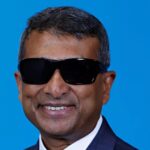 Gopal MitraGlobal Lead, Children with Disabilities, UNICEF
Gopal MitraGlobal Lead, Children with Disabilities, UNICEF -
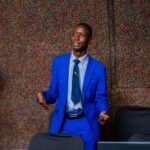 Tapiwa MutsikiraEqual World Youth Champion, Sightsavers
Tapiwa MutsikiraEqual World Youth Champion, Sightsavers -
 Antonio Palma LopezMember, RIADIS
Antonio Palma LopezMember, RIADIS
Main session about commitments (Hall 7)
Break
· Catering
· Exhibition Space
· Networking
11:30 AM – 13:00 PM
Location:
Hall 3, 8
Time:
13:00 PM – 14:00 PM
60’
Location:
Hall 4.2
Side Event 19
How can Asia and the Pacific’s banking sector advance the economic inclusion of people with disabilities? A case study from Asian Development Bank (ADB) & Global Disability Innovation Hub (GDI Hub)
Organized by: Asian Development Bank (ADB), Global Disability Innovation Hub (GDI Hub)
Speakers
-
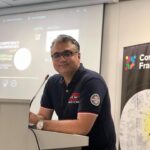 Mirza Muhammad Asim BaigGroup Head Human Resources Management Group, National Bank of Pakistan
Mirza Muhammad Asim BaigGroup Head Human Resources Management Group, National Bank of Pakistan -
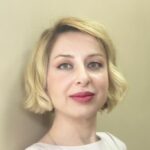 Maka BochorishviliESG Coordinator, TBC Bank
Maka BochorishviliESG Coordinator, TBC Bank -
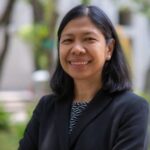 Leah GutierrezDirector General, Sector Department 3, Asian Development Bank
Leah GutierrezDirector General, Sector Department 3, Asian Development Bank -
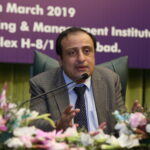 Muhammad Atif SheikhExecutive Director, Special Talent Exchange Program, Pakistan
Muhammad Atif SheikhExecutive Director, Special Talent Exchange Program, Pakistan -
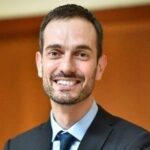 Can SutkenPrincipal Investment Specialist, Trade and Supply Chain Division, Asian Development Bank
Can SutkenPrincipal Investment Specialist, Trade and Supply Chain Division, Asian Development Bank -
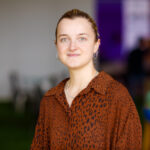 Pollyanna WardropSenior Researcher, Financial Inclusion, Global Disability Innovation Hub
Pollyanna WardropSenior Researcher, Financial Inclusion, Global Disability Innovation Hub
Location:
Hall 7.2
Side Event 20
Ending the institutionalisation of children and adults with disabilities: sharing experiences
Organized by: Foreign Commonwealth and Development Office (FCDO), Inclusion International
Speakers
-
 H.E. Wafa Bani MustafaMinister of Social Development, Jordan
H.E. Wafa Bani MustafaMinister of Social Development, Jordan -
 Sir Stephen TimmsMinister of State, Department of Work and Pension and Department of Education, United Kingdom
Sir Stephen TimmsMinister of State, Department of Work and Pension and Department of Education, United Kingdom -
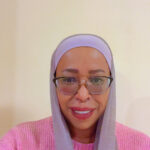 Madiha Al-JaziRegional Inclusion Technical Specialist, Humanity and Inclusion
Madiha Al-JaziRegional Inclusion Technical Specialist, Humanity and Inclusion -
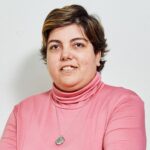 Maribel CáceresVice President, Plena Inclusion
Maribel CáceresVice President, Plena Inclusion -
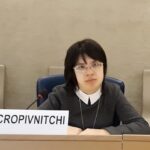 Dumitrita CropivnitchiMoldova children’s rights advocate
Dumitrita CropivnitchiMoldova children’s rights advocate -
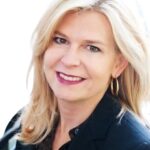 Connie Laurin-BowieExecutive Director, Inclusion International
Connie Laurin-BowieExecutive Director, Inclusion International -
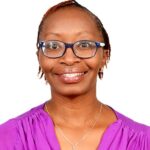 Nancy NteereNetwork Manager, Able Child Africa
Nancy NteereNetwork Manager, Able Child Africa -
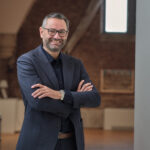 Milan SverepaDirector, Inclusion Europe
Milan SverepaDirector, Inclusion Europe -
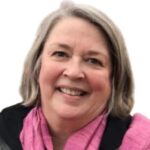 Sue SwensonPresident, Inclusion International
Sue SwensonPresident, Inclusion International
Location:
Hall 7.3
Disability Data Forum: Harnessing local narratives and diverse data sources
This session will spotlight country level efforts for disability disaggregated data, with the aim to discuss the diversity and richness of data sources including citizen-led data, and participatory data collection, analysis, and use.
Speakers
-
 Ingrid-Gabriela HovenManaging Director, GIZ
Ingrid-Gabriela HovenManaging Director, GIZ -
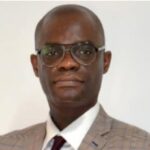 Steve Mboko IbaraDirector General of the National Institute of Statistics, Brazzaville, Republic of Congo
Steve Mboko IbaraDirector General of the National Institute of Statistics, Brazzaville, Republic of Congo -
 Pamela MolinaExecutive Director, World Federation of the Deaf
Pamela MolinaExecutive Director, World Federation of the Deaf -
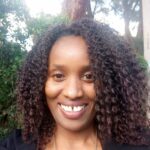 Sally NdutaUnited Disabled Persons of Kenya
Sally NdutaUnited Disabled Persons of Kenya -
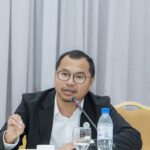 Sann RatanaDirector, Department of Disability Welfare for People with Disabilities, Ministry of Social Affairs, Veterans and Youth Rehabilitation, Cambodia
Sann RatanaDirector, Department of Disability Welfare for People with Disabilities, Ministry of Social Affairs, Veterans and Youth Rehabilitation, Cambodia -
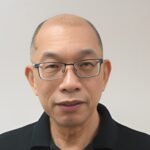 Hercules ParadiangDirector, CBM Global Philippines
Hercules ParadiangDirector, CBM Global Philippines
Break
· Catering
· Exhibition Space
· Networking
14:00 PM – 14:30 PM
Location:
Hall 3, 8
Time:
14:30 PM – 15:30 PM
60’
Location:
Hall 4.2
Side Event 21
Championing the Localization of the UNCRPD: Local and Regional Government’s Commit to Change
Organized by: United Cities and Local Governments, German Federal Ministry for Economic Cooperation and Development (BMZ)
Speakers
-
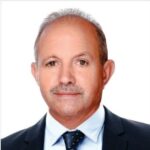 Mohammad Abdelkarim Abed AlmhairatMunicipal Councillor of Amman
Mohammad Abdelkarim Abed AlmhairatMunicipal Councillor of Amman -
 Ola AbualghaibDirector, UN Global Disability Fund
Ola AbualghaibDirector, UN Global Disability Fund -
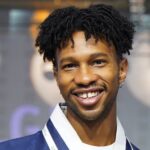 Federico Batista PoitierManager of Policies & Programs on Accessibility, UCLG
Federico Batista PoitierManager of Policies & Programs on Accessibility, UCLG -
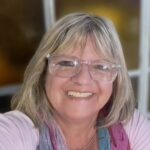 Patricia MorlaVice President of the Municipal Court of Auditors of Villa Carlos Paz
Patricia MorlaVice President of the Municipal Court of Auditors of Villa Carlos Paz -
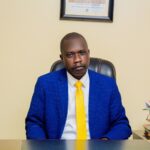 Wadri Sam NyakuaMayor of Arua
Wadri Sam NyakuaMayor of Arua -
 Peter Anyang’ Nyong’oGovernor of Kisumu County, Kenya
Peter Anyang’ Nyong’oGovernor of Kisumu County, Kenya -
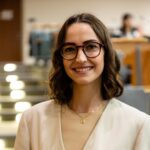 Claudia Ribosa PérezPrograms Officer, UCLG
Claudia Ribosa PérezPrograms Officer, UCLG -
 Kottamuri SatishDeputy Mayor of Viskhapanatanam
Kottamuri SatishDeputy Mayor of Viskhapanatanam -
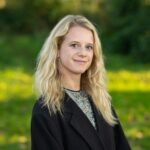 Michelle van RaalteSenior Project Manager, VNG International
Michelle van RaalteSenior Project Manager, VNG International
Location:
Hall 7.2
Side Event 22
Inclusion in Action: The Global Coalition for Inclusive Education through Sport
Organized by: Special Olympics International, Stavros Niarchos Foundation
Speakers
-
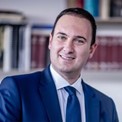 H.E. Clifton GrimaMinister of Education, Sport, Youth, Research, and Innovation, The Republic of Malta
H.E. Clifton GrimaMinister of Education, Sport, Youth, Research, and Innovation, The Republic of Malta -
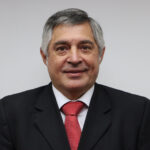 H.E. Luis Fernando RamírezMinister of Education, Republic of Paraguay
H.E. Luis Fernando RamírezMinister of Education, Republic of Paraguay -
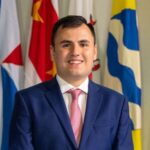 Gilmour BorgSargent Shriver Global Messenger, Special Olympics Malta Athlete
Gilmour BorgSargent Shriver Global Messenger, Special Olympics Malta Athlete -
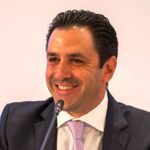 David EvangelistaPresident and Managing Director, Special Olympics Europe Eurasia
David EvangelistaPresident and Managing Director, Special Olympics Europe Eurasia -
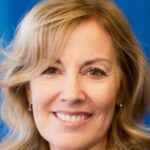 Jacqueline JodlChief of Global Youth Engagement, Special Olympics International
Jacqueline JodlChief of Global Youth Engagement, Special Olympics International -
 Yasmine SherifExecutive Director, Education Cannot Wait
Yasmine SherifExecutive Director, Education Cannot Wait
Location:
Hall 7.3
Disability Data Forum: Investments and Partnerships to Strengthen Data Systems
This session brings together different type of data stakeholders to highlight pathways to strengthening inclusive data systems. Presenters will showcase case studies of investments in data systems and resources to collate and share disability disaggregated data at a global level including the Centre of Excellent on Data for Children with Disabilities and two new Disability Statistics Databases by the Disability Data Initiative.
Speakers
-
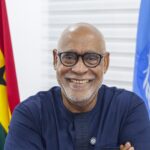 Charles AbaniUN Resident Coordinator in Ghana
Charles AbaniUN Resident Coordinator in Ghana -
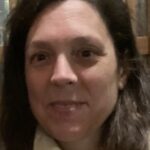 Elizabeth LockwoodCentre of Excellence on Data for Children with Disabilities
Elizabeth LockwoodCentre of Excellence on Data for Children with Disabilities -
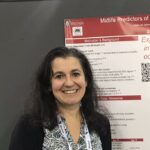 Sophie MitraDisability Data Initiative, Fordham University
Sophie MitraDisability Data Initiative, Fordham University -
 Diane RichlerInternational Disability Alliance
Diane RichlerInternational Disability Alliance -
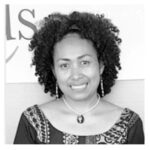 Laisa VeretiPacific Disability Forum
Laisa VeretiPacific Disability Forum -
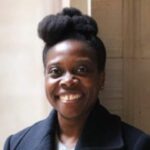 Elsie MehobaStatistics for Development Division of the Pacific Community (SPC)
Elsie MehobaStatistics for Development Division of the Pacific Community (SPC)
Break
· Catering
· Exhibition Space
· Networking
15:30 PM – 16:00 PM
Location:
Hall 3, 8
Time:
16:00 PM – 17:00 PM
60’
Location:
Hall 4.2
Side Event 23
Disability Inclusive Urban Resilience and Disaster Risk Reduction
Organized by: UN Office for Disaster Risk Reduction, Culture Centre of the Deaf of Mongolia
Speakers
-
 Ola AbualghaibDirector, UN Global Disability Fund
Ola AbualghaibDirector, UN Global Disability Fund -
 Samuel Ganio AquinoHead, Persons with Disability Affairs Office (PDAO), City of Baguio, Philippines
Samuel Ganio AquinoHead, Persons with Disability Affairs Office (PDAO), City of Baguio, Philippines -
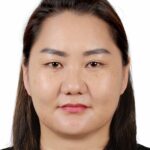 Dulamsuren JigjidExecutive Director, Culture Centre of the Deaf, Mongolia
Dulamsuren JigjidExecutive Director, Culture Centre of the Deaf, Mongolia -
 Kamal KishoreSpecial Representative to the Secretary General and Head of UNDRR
Kamal KishoreSpecial Representative to the Secretary General and Head of UNDRR -
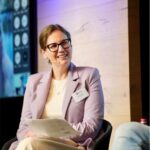 Rylin RodgersDisability Policy Director, Microsoft Accessibility
Rylin RodgersDisability Policy Director, Microsoft Accessibility -
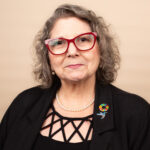 Marcie RothExecutive Director and Chief Executive Officer, World Institute on Disability
Marcie RothExecutive Director and Chief Executive Officer, World Institute on Disability -
 Kaukab StewartMinister for Equalities, Scotland
Kaukab StewartMinister for Equalities, Scotland
Location:
Hall 7.2
Side Event 24
Launching the Business & Disability Partnership Agenda for Action
Organized by: Business Disability International
Speakers
-
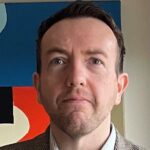 Neil MillikenVice President, Global Head of Accessibility & Digital Inclusion ATOS, outgoing chair ILO Global Business & Disability Network
Neil MillikenVice President, Global Head of Accessibility & Digital Inclusion ATOS, outgoing chair ILO Global Business & Disability Network -
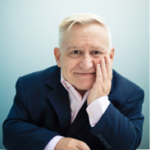 Simon MintyDirector, Sminty Ltd
Simon MintyDirector, Sminty Ltd -
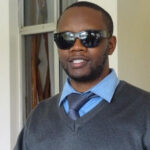 Eric NgondiDirector, United Disabled Persons of Kenya
Eric NgondiDirector, United Disabled Persons of Kenya -
 Susan Scott-ParkerFounder, Business Disability International
Susan Scott-ParkerFounder, Business Disability International
Location:
Hall 7.3
Disability Data Forum: National commitments and global action on disability data
The session will celebrate data centered commitments made by country governments, and open a dialogue on global initiatives to support efforts on disability disaggregated data by multilateral organizations and the private sector. Presenters will showcase the World Bank’s new Disability Data Hub.
Speakers
-
 H.E. Azmi MahafzahMinister of Education and Minister of Higher Education and Scientific Research, Jordan
H.E. Azmi MahafzahMinister of Education and Minister of Higher Education and Scientific Research, Jordan -
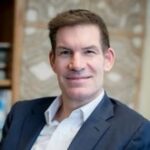 Robin MearnsGlobal Director for Social Development, World Bank
Robin MearnsGlobal Director for Social Development, World Bank -
 Gopal MitraGlobal Lead, Children with Disabilities, UNICEF
Gopal MitraGlobal Lead, Children with Disabilities, UNICEF -
 Rylin RodgersDisability Policy Director, Microsoft Accessibility
Rylin RodgersDisability Policy Director, Microsoft Accessibility -
 Tolhas DamanikExecutive Director, Wahana Inklusif Indonesia
Tolhas DamanikExecutive Director, Wahana Inklusif Indonesia
Break
· Catering
· Exhibition Space
· Networking
17:00 PM – 17:15 PM
Location:
Hall 3, 8
Joint Final: The Amman-Berlin Declaration
17:15 PM – 18:45 PM
Hall 7
Brave New World – GDS Club Night
– Public festival-like club event on 4 floors
– Music, fashion and arts
– Best-practice approach in regards to inclusion
20:00 PM – 05:00 AM
Location: Ritter Butzke (Ritterstrasse 24-27, Berlin)
Link of the event: https://brave-new-world.berlin/
Time:
9:00 – 9:30
30’
Location:
Fireside Chat Area 1
Amplifying the voices of children with disabilities through self-advocacy and research
Save the Children & UNICEF Innocenti
Speakers
-
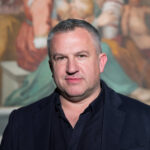 Gavin WoodDisability Inclusion Research Manager, UNICEF Innocenti – Global Office of Research and Foresight
Gavin WoodDisability Inclusion Research Manager, UNICEF Innocenti – Global Office of Research and Foresight -
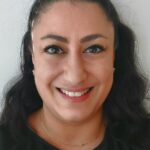 Martina OrsanderGlobal Lead Disability Inclusion, Save the Children International
Martina OrsanderGlobal Lead Disability Inclusion, Save the Children International -
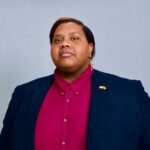 Jakeel D. AbdullahGuyer Fellow, Save the Children US
Jakeel D. AbdullahGuyer Fellow, Save the Children US
Location:
Fireside Chat Area 2
Ushering a movement towards the Purple Economy
EnAble India
Speakers
-
 Dipesh SutariyaChairman and Managing Director, EnAble India
Dipesh SutariyaChairman and Managing Director, EnAble India -
 Sayomdeb Mukherjee ‘Den’Head of International projects, EnAble India
Sayomdeb Mukherjee ‘Den’Head of International projects, EnAble India
Location:
Fireside Chat Area 3
Accessibility in the Built Environment: A Canadian Innovation
Rick Hansen Foundation
Speakers
-
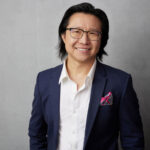 Kevin NgDirector of Technical and Program Content, Rick Hansen Foundation
Kevin NgDirector of Technical and Program Content, Rick Hansen Foundation
Time:
10:30 – 11:00
30’
Location:
Fireside Chat Area 1
Launch of the Global Disability Inclusion Report
GDS co-hosts: Germany, Jordan, IDA
Moderators
-
 Dominique SchlupkothenDirector Communicy Based Inclusive Development, CBM
Dominique SchlupkothenDirector Communicy Based Inclusive Development, CBM
Speakers
-
 Nawaf KabbaraChair and President, International Disability Alliance
Nawaf KabbaraChair and President, International Disability Alliance -
 Hendrik DenkerSenior Policy Officer Human Rights, Disability Inclusion, Media, BMZ
Hendrik DenkerSenior Policy Officer Human Rights, Disability Inclusion, Media, BMZ -
 Alexandre CoteGDIR coordinator, UNICEF
Alexandre CoteGDIR coordinator, UNICEF
Breaks & Main sessions
10:00 am – 13:00 pm
Time:
13:00 – 13:30
30’
Location:
Fireside Chat Area 1
Champions of Inclusive Spaces – Report by the Zero Project
Zero Project
Speakers
-
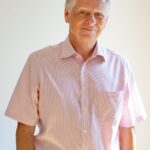 Michael FembekMember of the Board of the Essl Foundation, and CEO of the Zero Project
Michael FembekMember of the Board of the Essl Foundation, and CEO of the Zero Project
Location:
Fireside Chat Area 2
Amplifying the Voices of Indigenous Person and Women with Disabilities in Climate Justice Initiatives
National Indigenous Disabled Women Association -Nepal (NIDWAN), Indigenous Person with Disabilities Global Network (IPWDGN), Minority Rights International
Speakers
-
 Pratima GurungPresident, National Indigenous Disabled Women Asociation, Nepal
Pratima GurungPresident, National Indigenous Disabled Women Asociation, Nepal -
 Lauren AveryDisability Project Coordinator, Minority Rights Group International
Lauren AveryDisability Project Coordinator, Minority Rights Group International -
 Birgitta WeibahrSenior Policy Specialist, Swedish International Development Cooperation Agency (Sida)
Birgitta WeibahrSenior Policy Specialist, Swedish International Development Cooperation Agency (Sida)
Location:
Fireside Chat Area 3
Lancet Commission on Disability and Global Health – A consultation
London School of Hygiene & Tropical Medicine
Speakers
-
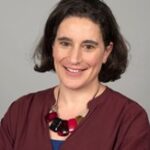 Hannah KuperCo-chair of the Lancet Commission, LSHTM
Hannah KuperCo-chair of the Lancet Commission, LSHTM -
 José Maria VieraExecutive Director, International Disability Alliance
José Maria VieraExecutive Director, International Disability Alliance
Break
14:00 pm – 14:30 pm
Time:
14:30 – 15:00
30’
Location:
Fireside Chat Area 1
Bridging the Gaps: Embracing Inclusivity for Visitors with Disabilities at The Jordan Museum
The Jordan Museum
Speakers
-
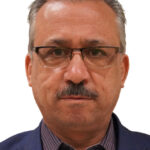 Yosha AlamriDirector of Technical affairs, The Jordan Museum
Yosha AlamriDirector of Technical affairs, The Jordan Museum
Location:
Fireside Chat Area 2
Ensuring Disability Inclusion at Leading AI Conferences globally
Zero Project & Microsoft
Speakers
-
 Michael FembekMember of the Board of the Essl Foundation, and CEO of the Zero Project
Michael FembekMember of the Board of the Essl Foundation, and CEO of the Zero Project -
 Rylin RodgersDisability Policy Director, Microsoft Accessibility
Rylin RodgersDisability Policy Director, Microsoft Accessibility
Location:
Fireside Chat Area 3
Role of regional and global coalitions in ensuring that the process of ending institutionalization of persons with disabilities is led by survivors and their experiences
Disability Rights International & Global Coalition on Deinstitutionalisation
Speakers
-
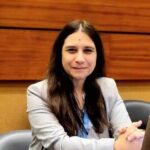 Dragana Ciric MilovanovicInclusive Development Advisor, Disability Rights International
Dragana Ciric MilovanovicInclusive Development Advisor, Disability Rights International -
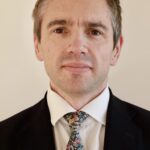 Jarrod ClyneDeputy Executive Director, International Disability Alliance
Jarrod ClyneDeputy Executive Director, International Disability Alliance -
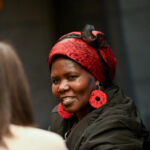 Robinah AlambuyaPresident, TCI, Triumph, Uganda
Robinah AlambuyaPresident, TCI, Triumph, Uganda
Break
15:30 pm – 16:00 pm
Time:
16:00 – 16:30
30’
Location:
Fireside Chat Area 1
Digital Literacy & Decent Work through disability-inclusive development
Rehabilitation International Korea, KOICA
Speakers
-
 Miyeon KimChair of Committee on the Rights of Persons with Disabilities
Miyeon KimChair of Committee on the Rights of Persons with Disabilities -
 Reena LeeDirector General, RI Korea
Reena LeeDirector General, RI Korea -
 Inmaculada Placencia PorreroSenior Expert on Disability, European Commission
Inmaculada Placencia PorreroSenior Expert on Disability, European Commission -
 Stefan TromelSenior Disability Specialist, International Labour Organization
Stefan TromelSenior Disability Specialist, International Labour Organization
Location:
Fireside Chat Area 2
Accessible MENA: Launch Event for GIZ-Initiative on Digital Inclusion
Deutsche Gesellschaft für Internationale Zusammenarbeit (GIZ)
Speakers
-
 Ingrid-Gabriela HovenManaging Director, GIZ
Ingrid-Gabriela HovenManaging Director, GIZ -
 Neil MillikenVice President, Global Head of Accessibility & Digital Inclusion ATOS, outgoing chair ILO Global Business & Disability Network
Neil MillikenVice President, Global Head of Accessibility & Digital Inclusion ATOS, outgoing chair ILO Global Business & Disability Network -
 Muhannad AlazzehSecretary General, Higher Council for the Rights of Persons with Disabilities, Jordan
Muhannad AlazzehSecretary General, Higher Council for the Rights of Persons with Disabilities, Jordan -
 Sabreen Al DwaibChristian Blind Mission (CBM), Country Representative Eastern Mediterranean
Sabreen Al DwaibChristian Blind Mission (CBM), Country Representative Eastern Mediterranean -
 Kristian LempaGIZ, Head of Division, Global Policy, Governance, Cities
Kristian LempaGIZ, Head of Division, Global Policy, Governance, Cities
Joint Final: The Amman -Berlin Declaration
17:15 pm – 18:45 pm
Time:
All Day – Hall 3
8:30 am – 17:30 pm’
Location:
Co-Host Jordan
A Barrier-Free Jordan
Organized by: The Higher Council for the Rights of Persons with Disabilities (HCD)
As the lead on all technical and logistical preparations on behalf of the GDS 2025 co-host in Jordan, the Higher Council for the Rights of Persons with Disabilities will participate in the activities of the Global Disability Summit 2025 with an exhibition for the Hashemite Kingdom of Jordan titled A Barrier-Free Jordan. The exhibition will focus on displaying the best practices and pioneering projects in the field of supporting and promoting the rights of persons with disabilities in various fields in partnership with a group of governmental institutions and private sector corporations. A group of videos, photos, brochures and replica for unique historical and archeological pieces will also be displayed, reflecting the experience of these institutions in piloting inclusive projects for persons with disabilities in order to raise awareness and encourage civil society institutions and the private sector entities to move forward in the disability-inclusive agenda in a variety of fields.
Location:
Visit Berlin
visitBerlin
Organized by: visitBerlin
visitBerlin is dedicated to making Berlin an inclusive and accessible destination. Our key actions include information and inspiration, collaboration with “Tourism for all”, awareness and training as well as building a network for accessibility within Berlin.
Location:
A1
UN Global Disability Fund (UN GDF)
Organized by: UN Global Disability Fund (UN GDF)
The UN Global Disability Fund’s booth will exhibit the important work of UN GDF advancing multi-stakeholder, country-led disability inclusion around the world. The booth will feature experts, case studies, and information on initiatives from UN GDF and its partners in the following areas: inclusive and resilient cities; capacity building and evidence; CSOs; and GDF’s new strategy. Visit us to talk to UN GDF colleagues and our partners, and to learn more about our work.
Location:
A2
Global Disability Innovation Hub: accelerating ideas into impact for a more just world
Organized by: Global Disability Innovation Hub
The exhibition will showcase pioneering global programmes, innovative tech development and research, and how our diverse portfolio enables rapid translation of research into practice. We’ll share key resources and knowledge products for the wider sector, alongside our collaborations with global institutions, business and tech to drive change. Tangible, real-world examples of disability innovation will sit alongside evidence and insights lead by academic excellence as we showcase our vision for disability inclusion and social justice.
Location:
A3
Accessibility 2030 Pavilion: Collaborative Pathways to Inclusive Cities
Organized by: Global Disability Innovation Hub, UNHabitat, UN Global Disability Fund (UN GDF), World Blind Union (WBU)
At this GDS booth, GDI Hub will lead the Accessibility 2030 initiative in partnership with the UK AID funded AT2030 programme, the Global Disability Fund, UNHabitat and World Blind Union. These partnerships ensure that a diversity of voices and expertise is showcased, emphasizing the power of collective action. Together, the partners will present projects and tools that advance accessibility in cities. The exhibition is a continuation of the Accessibility 2030 initiative, where we brought together 15 partners at World Urban Forum in Cairo, Egypt in November. The booth will feature a collaborative showcase of innovations, case studies, and tools aimed at addressing urban accessibility challenges. The content will be tailored to engage visitors, fostering dialogue on how we can work together to make our cities more inclusive.
Location:
A4
Inclusive Futures: This is what inclusion looks like
Organized by: Inclusive Futures
In the five countries where we work, there are now more children with disabilities learning at school, more entrepreneurs with disabilities earning a living, and more people with accessing the health care they need, and living their lives free from discrimination. This is what inclusion looks like. Visit our booth to connect with our consortium and OPD partners, explore key insights from our programme such as the six principles for inclusive development, and access memorable stories with our collection of postcards and videos. You can also pledge your support to future generations by signing our open letter on inclusive education and be part of the movement for change. Together, we can close the gap, target inequality and build a more equal world!
Location:
A5
Private sector contributions to the Global Disability Agenda through the lever of International Cooperation
Organized by: Deutsche Gesellschaft für Internationale Zusammenarbeit (GIZ) GmbH
The exhibition booth showcases multi-stakeholder project examples in training and employing persons with disabilities (PWDs). The GIZ cooperates with companies and TVET institutions in GIZ partner countries such as Egypt, Ethiopia, Ghana and Vietnams in sectors like Textiles, Mobility, Digital Services. The booth highlights international cooperation activities and inclusion champions supporting rights and inclusion for PWDs that contribute to systemic change in alignment with international laws and sustainable development goals.
Location:
A6
Youth-led Initiatives for Empowering Young People with Disabilities to Enjoy their Political and Social rights
Organized by: Blind Youth Association Nepal (BYAN)
BYAN is showcasing a diverse range of accessible IEC materials in our exhibition, which we have been using to promote inclusive sexual and reproductive health and rights (SRHR) and the political participation of persons with disabilities. Our display includes Easy-to-Read CSE Flipcharts, Picture Exchange Communication (PEC) materials, and Tactile Models related to Reproductive Health and Family Planning. Visitors can also explore SRHR-related Nepali Sign Language videos and the accessible mobile application “Hami” for SRHR. Additionally, we are presenting our best practices through posters and videos.
Location:
A7
Inclusion is a Right: Speech Therapy & Economic Empowerment for Special Needs Children in Ghana
Organized by: Affinity Access International (AAI)
Experience an exclusive 3D preview of Kumasi’s Therapy & Vocational Hub, a catalyst for nationwide change. Learn how this facility will:
• Train 100 rural therapists annually to staff mobile units reaching remote areas.
• Deliver speech therapy and vocational programs to 100,000 rural and urban special needs children by 2035.
• Partner with KNUST to provide practical training for graduate students aspiring to be Speech-Language Pathologists
Join us in ensuring no child’s potential is limited by geography.
Location:
A8
Inclusion Next Generation:
Ghanaian and German Highschool Cooperation promotes implementation of Inclusive Design and Barrier free Systems
Organized by: Frankfurt University of Applied Sciences (Frankfurt UAS), U!REKA European University in cooperation with the KWAME Nkrumah University of Science and Technology; Kumasi, Ghana
Ghanaian and German University Cooperation promotes implementation of Inclusive Design and Barrier free Systems The interdisciplinary master’s programme ‘Inclusive Design’ at Frankfurt UAS and the ‘College of Art and Built Environment’ at KNUST have been collaborating for many years. Since 2011, the Ghanaian and German teachers and students have been working together to develop and research inclusive solutions for the implementation of inclusive design and barrier-free systems. The aim is to design liveable environments that take equal account of spatial, technical and social aspects. Concretely, a first joint Guideline was published for Ghanaian vocational institutions in 2022: ‘Inclusive Architectural Design Concepts and Strategies for Technical Vocational Education Training’. As part of the GDS, best-practice examples of the different activities of our international university cooperation, the respective study programmes of the two universities involved and the Guideline will be presented as a contribution to the obligation to implement Inclusion. You can look forward to more information, documentation and possible dialogue at the booth.
Location:
A9
Restoring Hope: Jordan’s Initiative to Support Amputees
Organized by: Restoring Hope Society
Restoring Hope Society’s exhibition showcases the prosthetic technology used in its areas of operations. The prostheses are developed by UK-based companies Koalaa (upper limbs) and Amparo (lower limbs), and are currently being used to treat amputees in Gaza, who are estimated to number over 16,000. Visit the exhibition to find out how you can contribute to supporting amputees in Gaza.
Location:
A10
Weaving Intersectional Inclusion: Innovative & Collaborative Tools for Economic and Equitable inclusion in Pakistan’s community and workplaces
Organized by: Deutsche Gesellschaft für Internationale Zusammenarbeit (GIZ) GmbH
Our exhibition showcases innovative efforts to promote diversity and disability inclusion across workplaces, education, and healthcare in Pakistan. Through GIZ-WE and the Employers Federation, the Pakistan Business and Disability Network (PBDN) drives job fairs, policy dialogues, and employer sensitization. GIZ’s PST and GPI projects provide e-learning to help businesses adopt inclusive practices, while success stories from Soorty Textiles, Intermarket Knit, and Deaf Reach demonstrate inclusive hiring in action. GIZ-EHS further strengthens inclusion by improving access to education and healthcare. Together, these initiatives create equitable opportunities for all!
Location:
A11
Konrad-Adenauer-Stiftung e.V.
Organized by: Konrad-Adenauer-Stiftung e.V.
For every citizen, Art. 25 of the International Covenant on Civil and Political Rights protects the right to vote, to be elected and to be part of public affairs. Konrad-Adenauer-Stiftung, together with its OPD partners who are coming to Berlin from the PR China, the Hashemite Kingdom of Jordan, Mongolia, Namibia, and Spain are showcasing at the exhibition booth best-practices of political participation on national level and through international cooperation. We want to engage with GDS participants to learn about their experiences, their activities and achievements which allow us to strive together for better opportunities for persons with disabilities to engage politically.
Location:
A12
Listen Include Respect: Guidelines for Inclusive Participation
Organized by: Down Syndrome International and Inclusion International
This exhibition profiles Listen Include Respect, the first international guidelines for organisations on inclusive participation for people with intellectual disabilities. The guidelines contain information on how to make any organisation inclusive – with guidance on ways to improve communication, provide good support, develop inclusive meetings, consultations and activities, employ people, and foster leadership. Visitors to the exhibition booth can learn about the guidelines, get information on how to apply them in their organisations, and get advice people with intellectual disabilities directly about how to include them in the work of the organisation.
Location:
A13
TBD
Organized by: Include Me TOO
Location:
A14
CREI (Inclusive Education Reference Center) / RJ / BR
Organized by: CREI (Inclusive Education Reference Center) / RJ / BR
The Inclusive Education Reference Center (CREI), inaugurated in April 2024, will train over 20,000 educators in inclusive and innovative teaching. Through accessibility tools, assistive technologies and alternative communication methods, it will promote the participation of people with disabilities. Additionally, it will implement a comprehensive support program for 100 families, integrating SESC and SENAC initiatives and developing a social technology replicable in inclusive public policies. This delegation reinforces Fecomércio RJ and its partner institutions’ commitment to building a more inclusive and accessible world for all.
Location:
A15
International Disability Alliance Information Booth
Organized by: International Disability Alliance
The International Disability Alliance kiosk will serve as the dedicated hub for OPDs. It will also function as a support point, offering real-time guidance and assistance throughout the Summit. Additionally, the kiosk will feature communication materials showcasing International Disability Alliance’s role as a co-host and its commitment to ensuring OPD voices are meaningfully included in the GDS process.
Location:
B1
Global Disability Inclusion Report – Accelerating Disability Inclusion in a Changing and Diverse World
Organized by: Global Disability Summit 2025
Location:
B2
The Future of Disability Rights is Feminist: Gender on the Agenda at GDS
Organized by: Women Enabled International
As feminists with disabilities and allies, we believe that it is essential that Gender is on the Agenda in disability rights spaces like the Global Disability Summit. This booth will serve as a community space for feminists with disabilities and allies at GDS and as a hub for conversation about rights at the intersection of gender and disability, what it means to be a feminist with disabilities, and how to support feminist disabled leadership. The booth will feature the work of Women Enabled International, other organizations led by feminists with disabilities, and GDS commitment makers whose work prioritizes rights at the intersection of gender and disability.
Location:
B3
Wansolwara Pacific
Organized by: Pacific Islands Forum
The exhibition booth will highlight the strides made in disability inclusion across the 18 countries of the Pacific. It will feature a range of multimedia and printed materials to engage visitors and raise awareness about the initiatives and achievements in promoting an inclusive society. The booth will be designed to be accessible and welcoming to all visitors, including those with disabilities.
Location:
B4
(Withdrew)
Organized by: NA
Location:
B5
Target inequality
Organized by: Sightsavers
Disability rights are human rights — so why can’t millions of people with disabilities access theirs? Visit our exhibition to meet our team and discover how you can take action through our campaigns and programmes to target inequality and build a more equal world. While you’re at our stand, grab a ‘Disability rights are human rights’ badge, pick up the latest edition of Changing Times newspaper —featuring powerful stories from young disability rights activists — and access our flagship Equal World? film. Join us in making change happen!
Location:
B6
Rehabilitation matters: The appeal made by people in conflict-affected areas
Organized by: Humanity and Inclusion – Handicap International
“Rehabilitation Matters” spotlights the transformative impact of rehabilitation and assistive technology on the lives of individuals in conflict-affected regions. The exhibition highlights the intersection of personal resilience and systemic change, revealing how access to rehabilitation builds a foundation for societal participation and inclusion.
The personal stories of women and men with disabilities come together into a unified call to action: the urgent need to scale up rehabilitation services and assistive technology globally, ensuring they are accessible, high quality, and rooted in the principles of rights, inclusion, and dignity.
Location:
B7
VENRO: German NGOs Driving Inclusive International Cooperation
Organized by: VENRO, Association of German Development and Humanitarian Aid Organizations
VENRO’s Disability Inclusion Working Group aims to mainstream disability inclusion in development cooperation and humanitarian aid, both by NGOs and the German Government. At the centre of the working group’s activities is the implementation of the international articles of the Convention on the Rights of Persons with Disabilities.
The group consists of German NGOs working in development and humanitarian aid. We advocate for the inclusion of persons with disabilities in Germany’s foreign and development policies and within VENRO’s member organizations.
Location:
B8
Qatar Social Work
Organized by: Qatar Social Work
– Highlighting the efforts of the Qatar Social Work Foundation and its affiliated centers in supporting and empowering persons with disabilities.
– The participation of Al Shafallah Center for Persons with Disabilities and Al Noor Center for the Blind to showcase initiatives and specialized services aimed at enhancing independence and social inclusion for this group.
– Exchanging experiences and enhancing collaboration with international organizations to create an inclusive and supportive environment for communities around the world.
Location:
B9
Building a Resilient Workforce: Career Success and Opportunity for All
Organized by: America – Mideast Educational and Training Services (Amideast) – Jordan
Amideast’s exhibition booth highlights its commitment to education for all and workforce integration. Showcasing its various programs, initiatives and strategic partnership approach, the booth demonstrates how educational pathways and market-driven skills training create sustainable employment opportunities for all.
Location:
B10
Inclusive Development in Action
Organized by: CBM Christian Blind Mission
At our booth, we present our Inclusive Participation Toolbox, a web-based tool designed to make it easier for stakeholders in international cooperation to achieve meaningful participation of persons with disabilities. It includes background knowledge, practical advice and ready-to-use material. Visitors can explore the Toolbox live and take a little quiz about it. Additionally, we show how CBM promotes the rights and inclusion of persons with disabilities through examples of our work in the Global South.
Location:
B11
Resilience for All: Putting Disability Inclusive Disaster Risk Reduction into Practice
Organized by: The Disability inclusive DRR Network (DiDRRN)
The Exhibition Booth will showcase and foster joint learning on innovative practices in disability-inclusive humanitarian action, disaster risk reduction (DRR) and climate action through case studies, toolkits, research findings, and multimedia displays. The resources (developed by the DiDRRN and its member organisations) address issues such as inclusive needs assessments, disability-disaggregated data, Early Warning 4 All, inclusive anticipatory action, multi-stakeholder collaboration and leadership of persons with disabilities, equipping stakeholders with practical ways to embed disability inclusion in Humanitarian, DRR and climate action strategies worldwide.
Location:
B12
PurpleSpace
Organized by: PurpleSpace
Visit our booth to talk about how your organisation can network with a global community of disability Employee Resource Group (ERG)/Network leaders, allies and champions to improve business performance and learn directly from your employees with disabilities. We call it ‘building disability confidence from the inside out’ and we have generated a global movement for positive cultural change.
Location:
B13
Inklusion von Anfang an – Mission Inklusion!
Organized by: Aktion Mensch e.V.
The Aktion Mensch organization has a mission to foster dialogue around ideas and opportunities for promoting inclusion in society. To achieve this, it is essential to have good examples and strong networks. Therefore the organization focuses on cooperation and collaboration between civil society, the business sector, and government agencies just as on the participation of people with disabilities in shaping the services and offerings.
Location:
B14
Transformative Urban Mobility Initiative (TUMI)
Organized by: Transformative Urban Mobility Initiative (TUMI)
The TUMI Booth is an interactive space showcasing solutions for sustainable and inclusive mobility. It features a VR experience that allows visitors to step into the shoes of different transport users across three continents, highlighting mobility challenges from diverse perspectives. Designed as a platform for engagement, the booth fosters discussions on accessibility, equity, and the future of urban mobility.
Location:
B15
Zero Project: Solutions for a world with zero barriers
Organized by: Zero Project
At the booth the Zero Project showcases key initiatives advancing innovation, accessibility, and inclusion for persons with disabilities. The Zero Project AI Assistant: Partnership Tool enhances global cooperation by leveraging disability-inclusive solutions. The Scale-Ups Report highlights 25 scalable practices, with some innovators present at the booth. The Champions of Inclusive Spaces Report promotes Universal Design in public spaces and complements the Zero Project’s fireside chat. Lastly, the Zero Project Call for Nominations 2026 (#ZeroCall26) fosters global collaboration in identifying and scaling innovative solutions for Accessibility, ICT, and Crisis Response.
Location:
IEH
Inclusive Educational Hub
Organized by: Perkins, German Federal Ministry for Economic Cooperation and Development (BMZ), Google, World Vision, International Disability Alliance (IDA) and the GLAD Inclusive Education Working Group.
Inclusive education sits at the foundation of realizing a broader disability inclusion agenda around the world. That’s why Perkins, BMZ, Google, and World Vision, with support from the International Disability Alliance (IDA) and the GLAD Inclusive Education Working Group, are joining forces to host The Inclusive Education Hub within the Exhibition Hall of the Global Disability Summit. Set up like an inclusive classroom, the Hub will feature two days of programming showcasing practical examples and diverse perspectives on how quality and accessible learning is driving equity in education and transforming the lives of children with disabilities.
Location:
AT exhibition
Assistive Technology: ‘Transforming Today and creATing futures’
An exhibition showcasing the transformative power of assistive technology (AT) called ‘Assistive Technology: Transforming today and creATing futures’ will be organized during the Global Disability Summit on 2-3 April 2025, and the Civil Society Forum on 1 April 2025. There continues to be limited understanding of the challenges faced by persons with disabilities, knowledge of assistive technology and the progress made by the AT sector. The exhibition will highlight the role of AT as one key element to tackle such challenges and the transformative impact AT can have on those who need it. Moreover, there is a growing need and usefulness for AT in the general population as well. However, there is a stark difference between the availability of AT in high income and low/middle income countries, even as there are more and more promising stories of success in these countries. The ‘Assistive Technology: Transforming today and creATing futures’ exhibition will share stories of innovation and inspiration that showcase solutions to overcome challenges of accessibility, availability and affordability. The exhibition, curated by ATscale, the global alliance for assistive technology, will be representing AT users, suppliers, distributors, non-profits, innovators from different regions of the world to showcase the transformative power of AT.